Project Zero
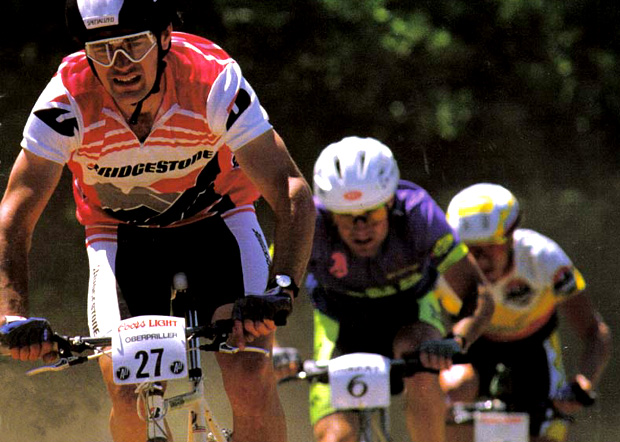
When I was growing up, my family and I did a lot of mountain biking. It was really just a matter of training; we were nordic ski racers and the heart-rate patterns in both sports seemed to be more similar than between road biking and skiing and the intense efforts to ride up steep, technical hills was better interval training than anything you can do manually. We even had our own, private mountain bike trail – probably the most technically challenging route I’ve ever ridden: an old, abandoned motocross trail in Norther Minnesota. The hills were steep, the terrain technical, and the insect life thick enough to keep out everyone with any sense. It doesn’t sound like much, but it was crazy.
I rode an old Schwinn which empirical evidence indicates was made out of sand-filled tubes. My dad and my brother were riding Cannonwhales, and I can’t remember what my mom and sister were on. It was all first-generation mountain bike gear: weighed like a tank, and was designed for riding ATB trails and dirt roads – not the single-track hell were were riding. Then, one fateful day, Spankles came to ride our crazy trails. He came aboard a Bridgestone MB-2.
I have always preferred riding on the road. The responsiveness of the bike, the rhythm; the feeling of spinning a gear at just the right cadence that seems to put you, the bike, and the road surface into a sympathetic vibration is unmatched in any other sport. Our mountain bikes were big, clunky, and stable at the expense of being responsive. Not the MB-2.
I got on his bike and rode it about 200 meters before I found myself thinking, “This feels like a road bike.” The Bridgestone was quick, light, responsive, and your position on the bike was like a road bike – you were low, stretched out, and in control of the machine. When I told him it felt like a road bike, he answered, “That’s the point.” I was hooked.
During a time when bike manufacturers where were starting to experiment with rear suspension in order to smooth out the inevitable bumps that come along with riding off-road, Bridgestone was taking a very different approach. Recognizing that there is no suspension more effective than the human body, they decided to focus on building small, responsive, and light bikes that could bounce beneath the cyclist with the rider proving the suspension rather than the bike.
Intrigued, my dad snapped up an MB-1, which was the top of the line Bridgestone at the time. He fell in love, and so did I – from a distance. I watched from my sand-filled Schwinn as he learned to ride his MB-1 over the most technical climbs that none of us had managed to climb before. The next year, Bridgestone produced an MB-0 (or MB-Zip, as they called it) and my dad had to have one. They were only produced for two years, but they were the lightest, quickest mountain bike available for many years (the Zip weighed 19 pounds back when road bikes hardly weighed so much.) Bridgestone only produced the MB-0 for two years, and went out of the bike-building business shortly thereafter.
In a strange twist of fate I happened by a bike shop that had only recently opened. As I passed by the shop window, I noticed none other than an MB-0 hanging in the window. Upon inquiry, it turned out that it was my size. And completely, 100% stock. And, with that, let Project Zero begin. I will make no irreversible changes, but this bike will become my primary mountain bike and I am embarking on a quest to make this thing rule. Stay tuned for updates. Oh, and the serial number is “1111”. How cools is that? They only made this bike for two years and made only 1000 per year. This is the 111th bike built in the second year.
Trivia: who is the man in that photo above?

Read more about the MB-0: Pedal! Damint! and Another Insepid Dot Com
And, the creme-de-la-creme, the 1991 Bridgestone Product Catalog (click the pictures to browse through to relive my 8th-grade summer):
Boy, that catalog really brings me back. I loved the humor and the technical tips such as Gene’s climbing technique and Michael’s descending techniques. Dig those crazy Scott Drop-Ins! And, for the record, I totally had a crush on Karen, the Cycling Marine Biologist.
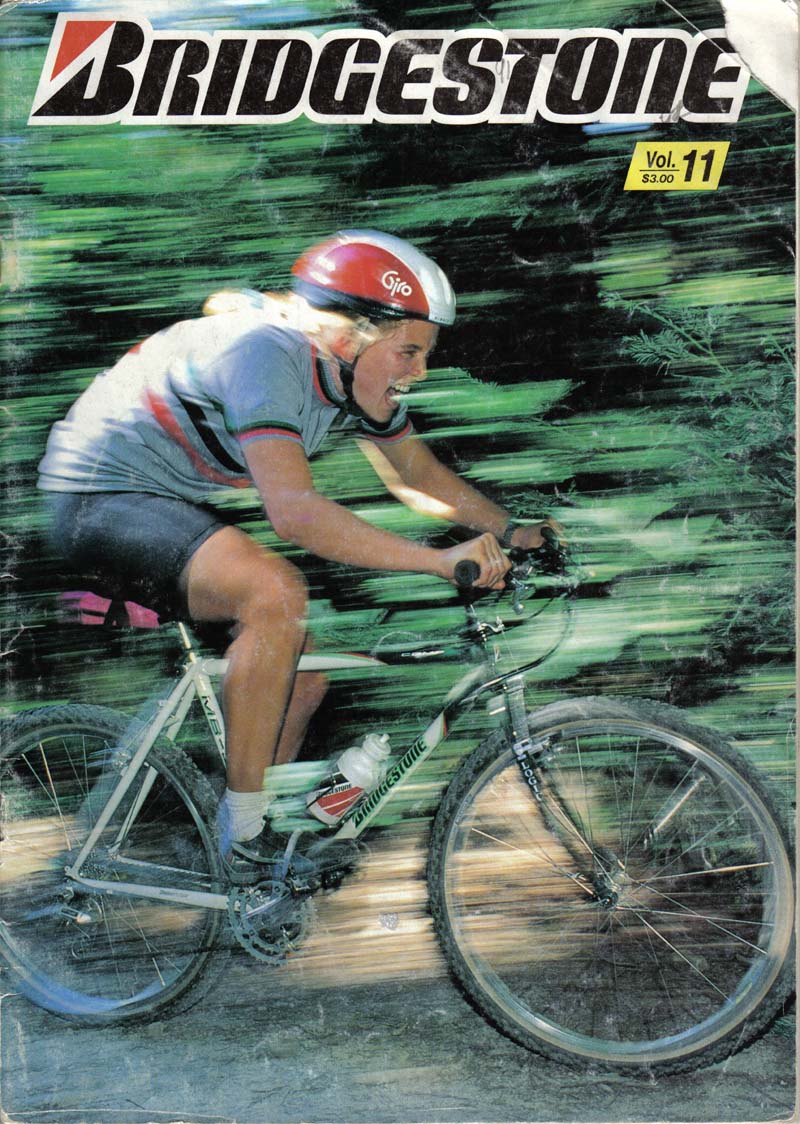
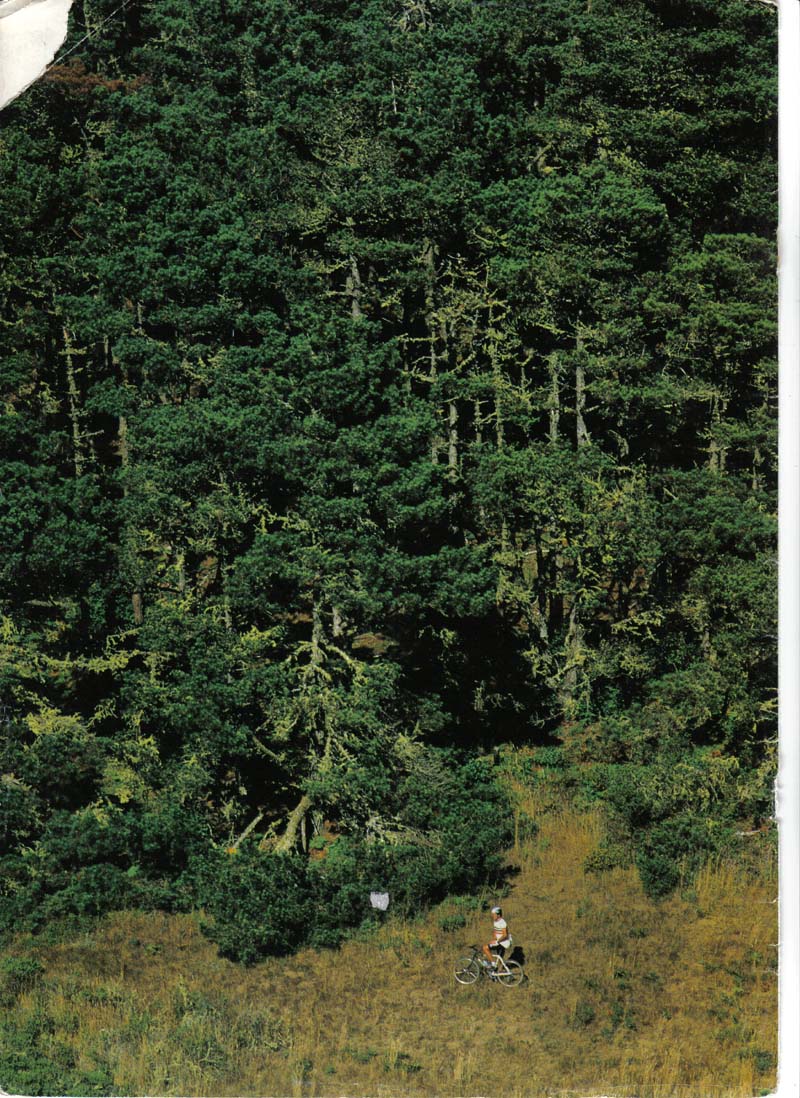
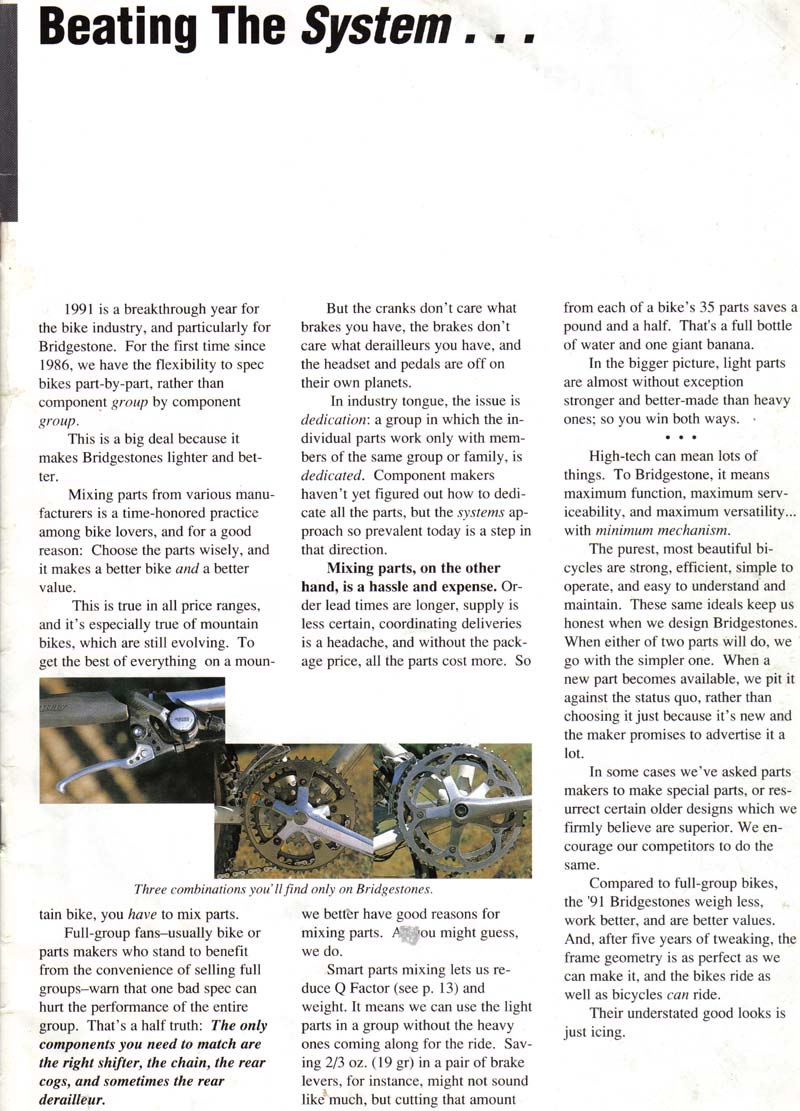
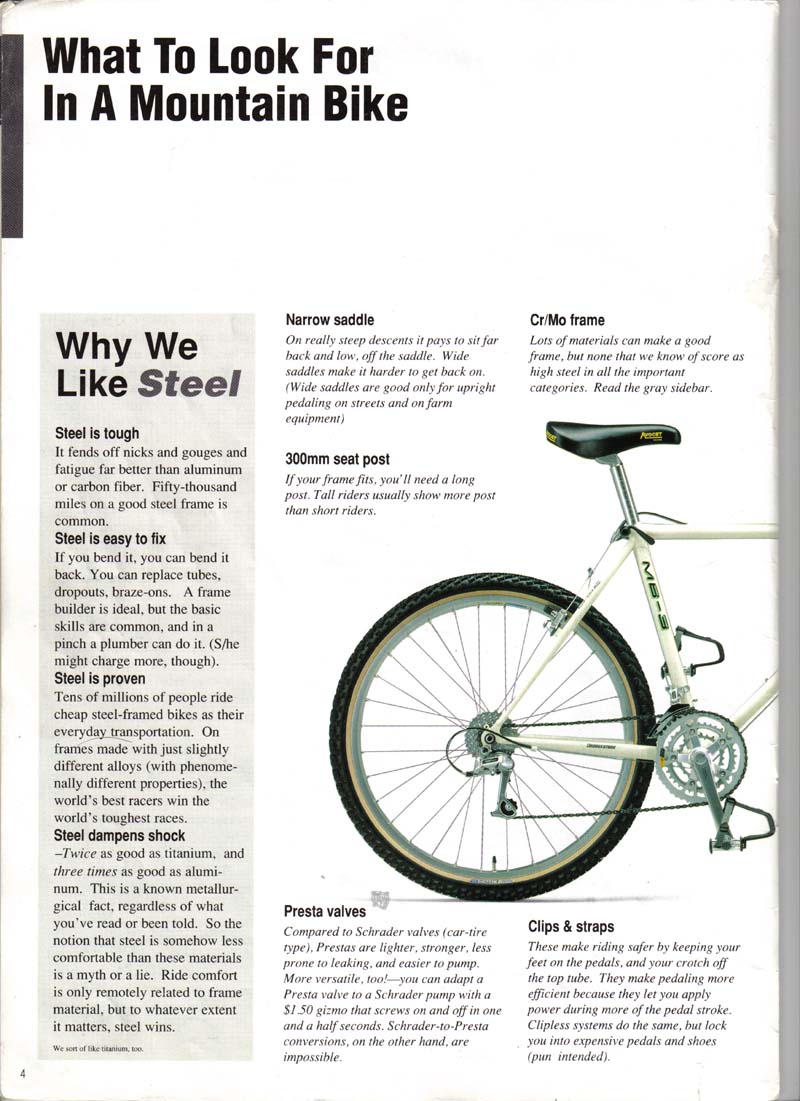
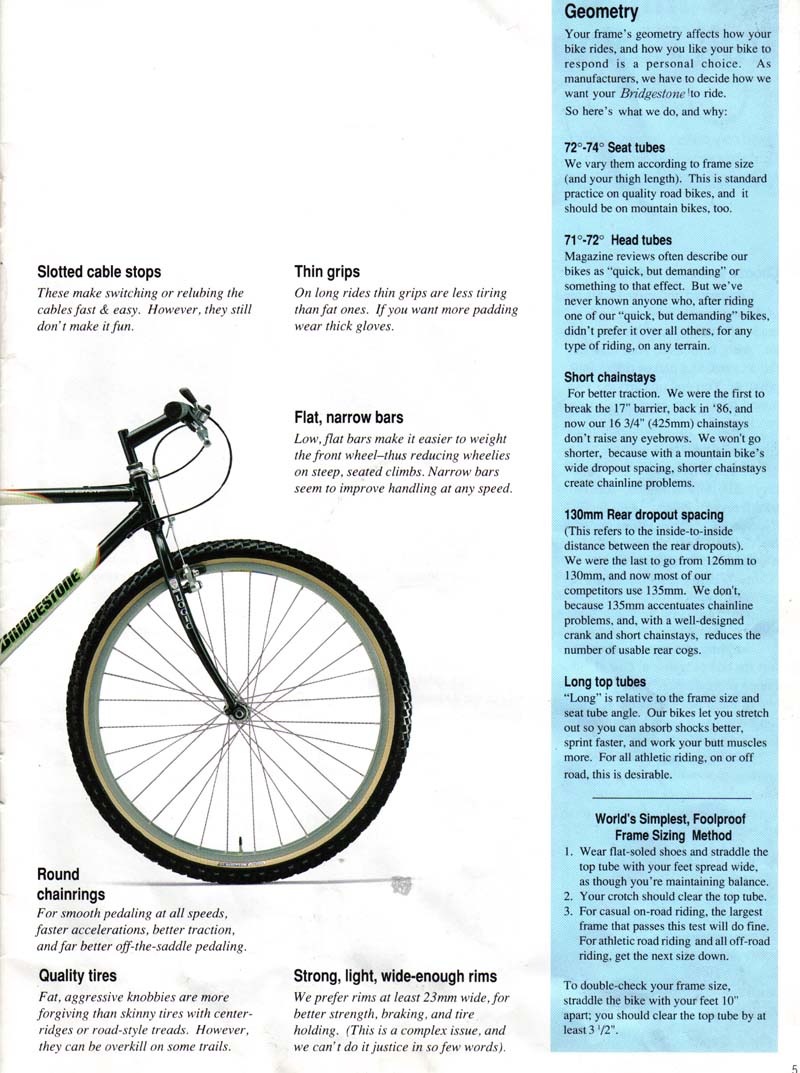
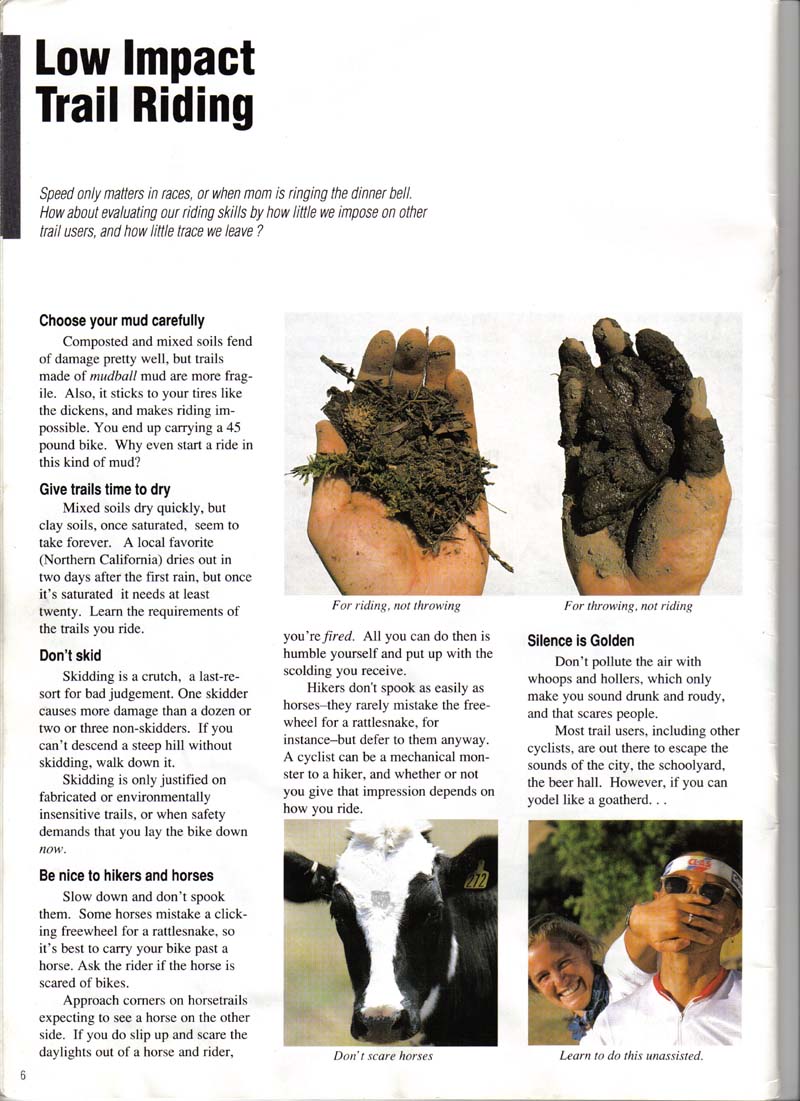
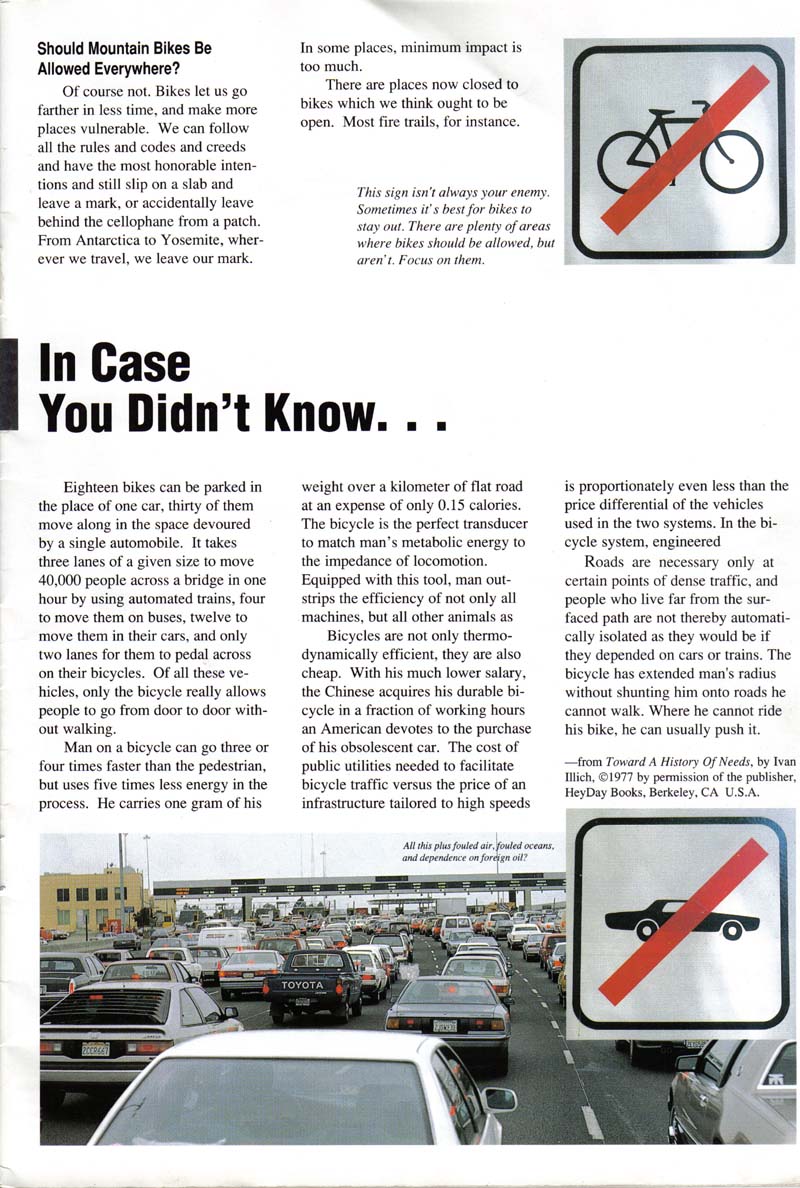
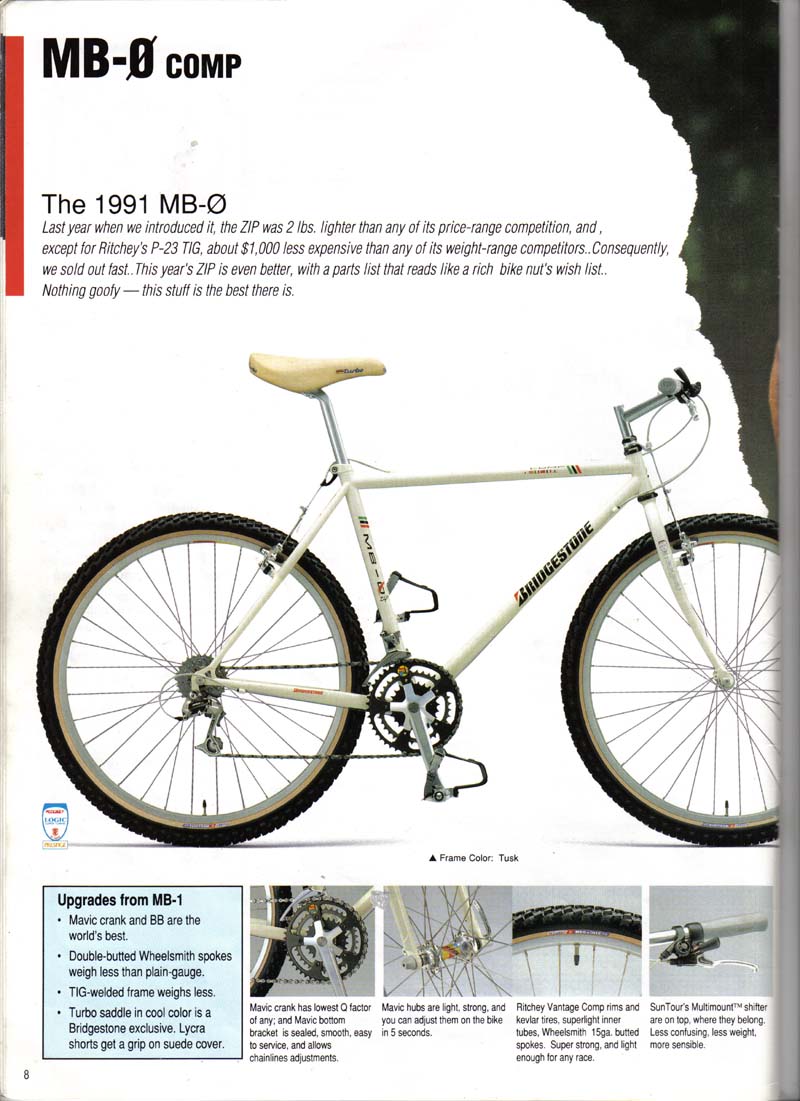

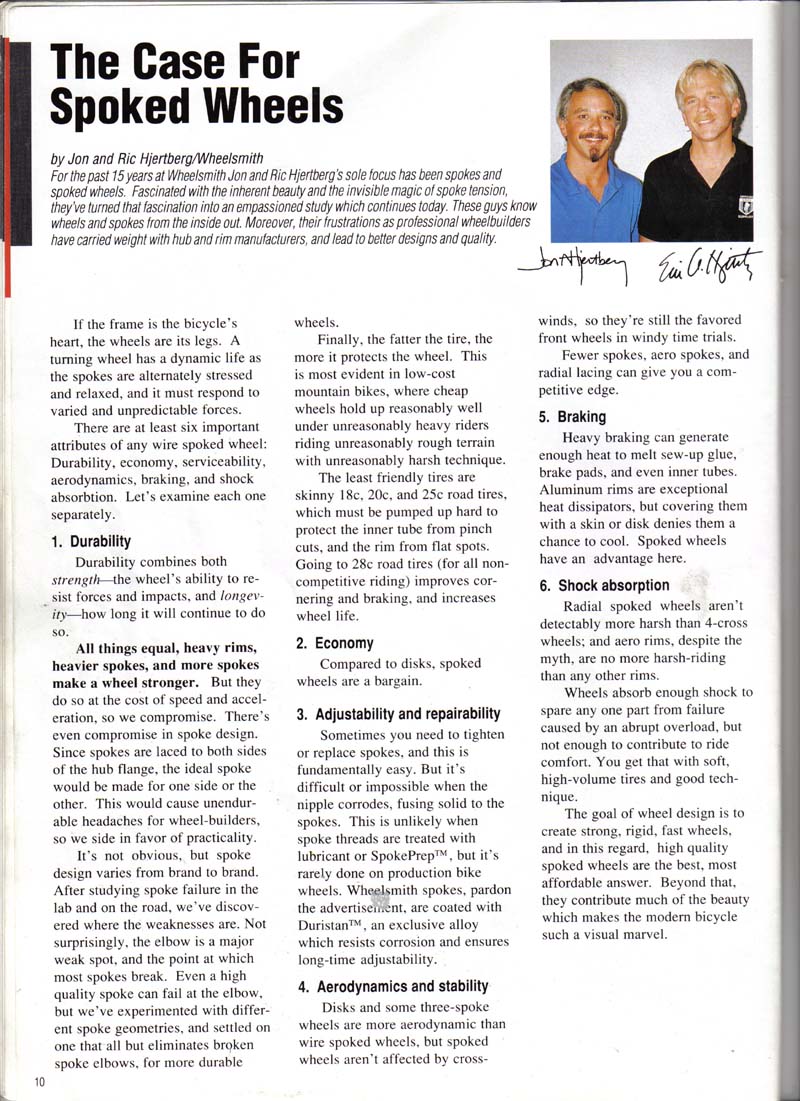
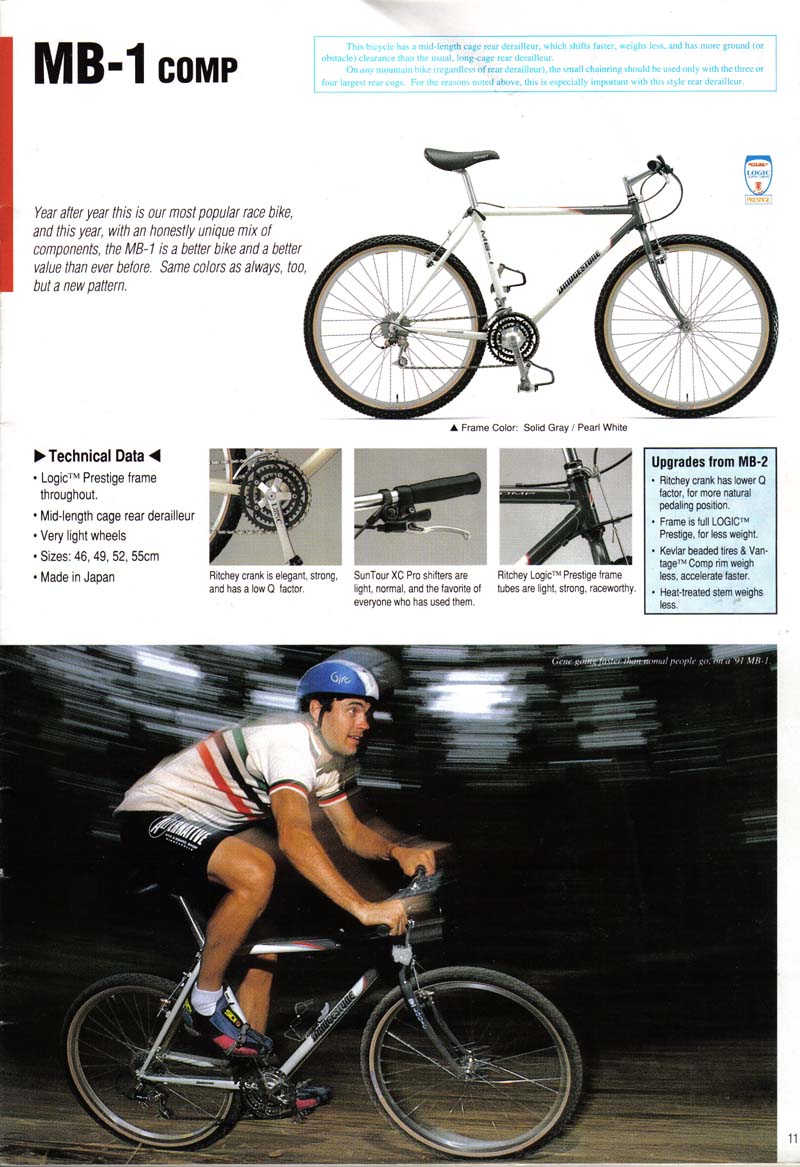
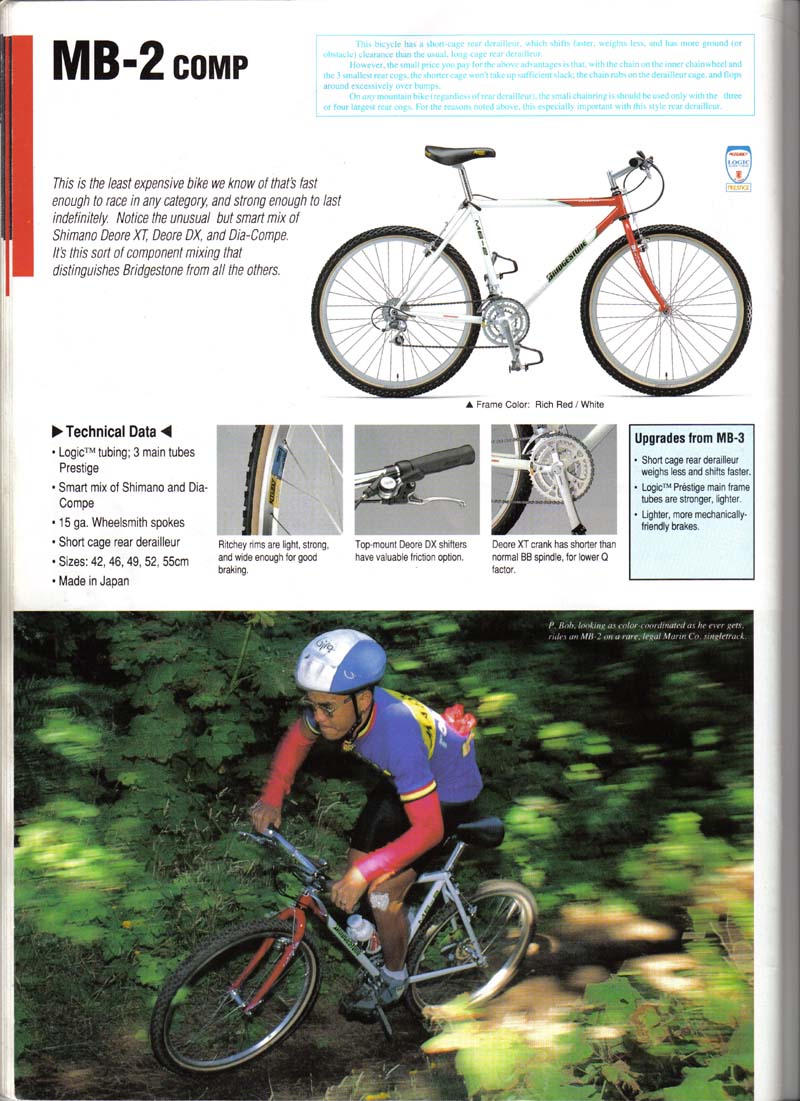
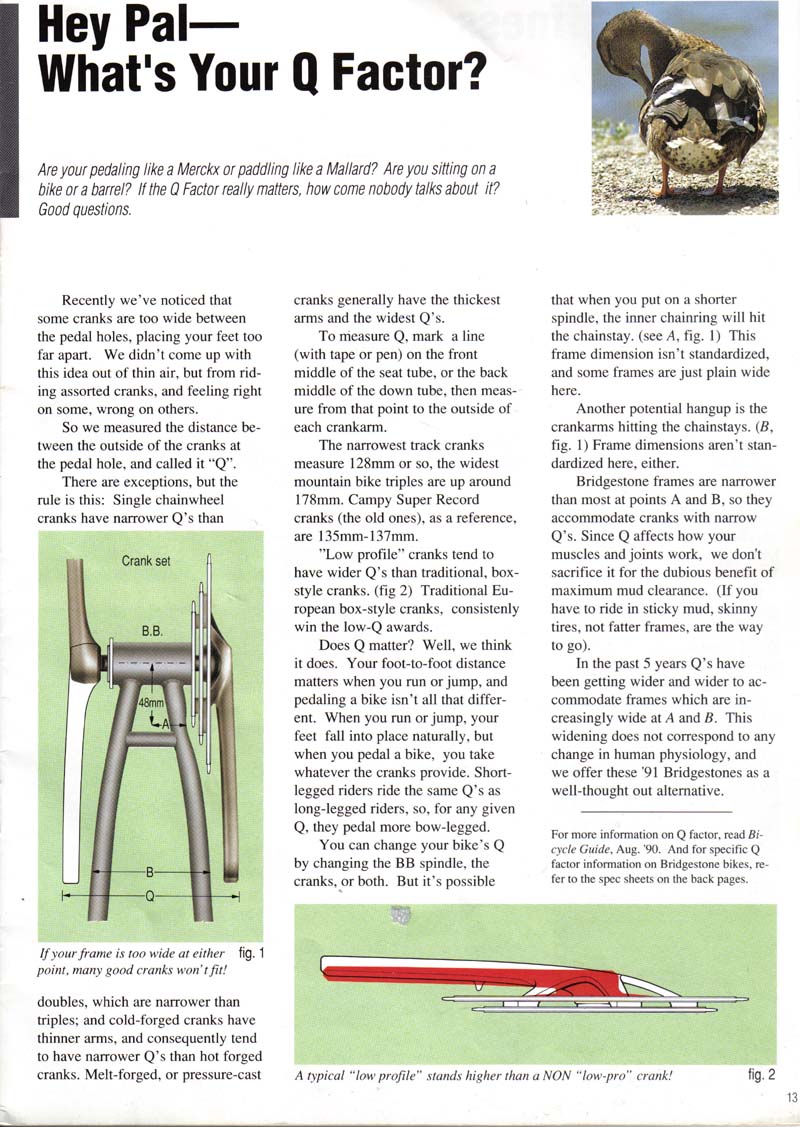
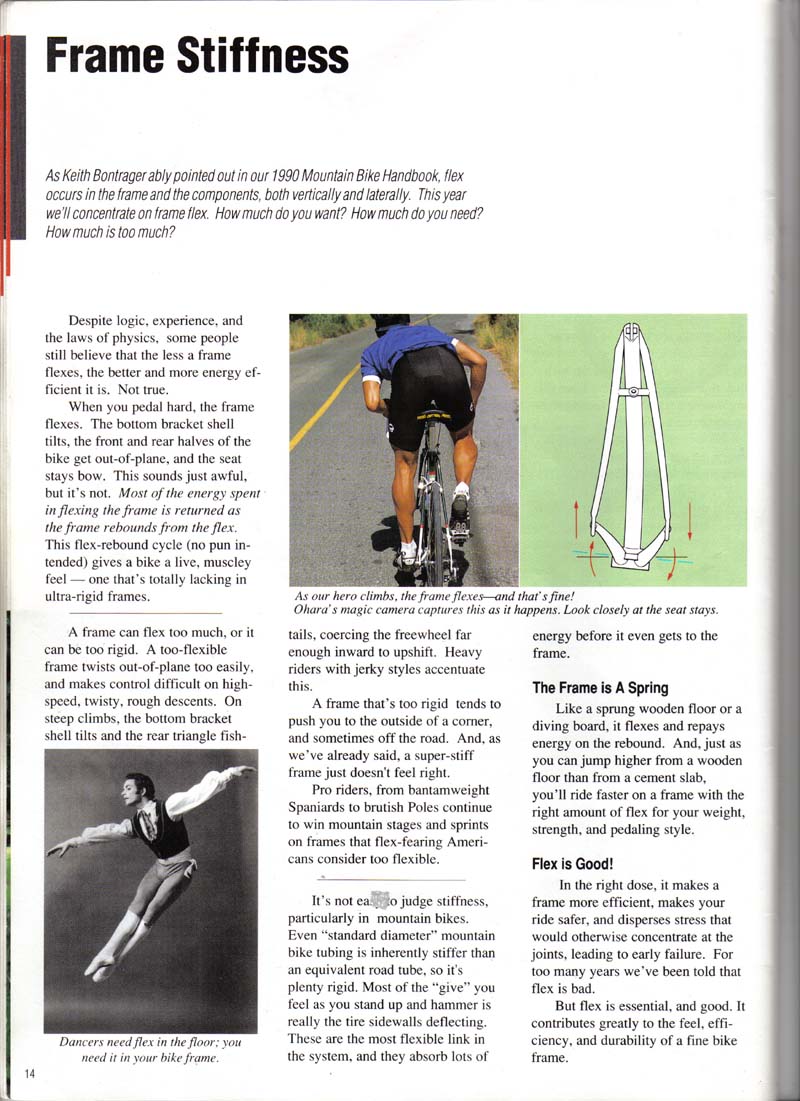
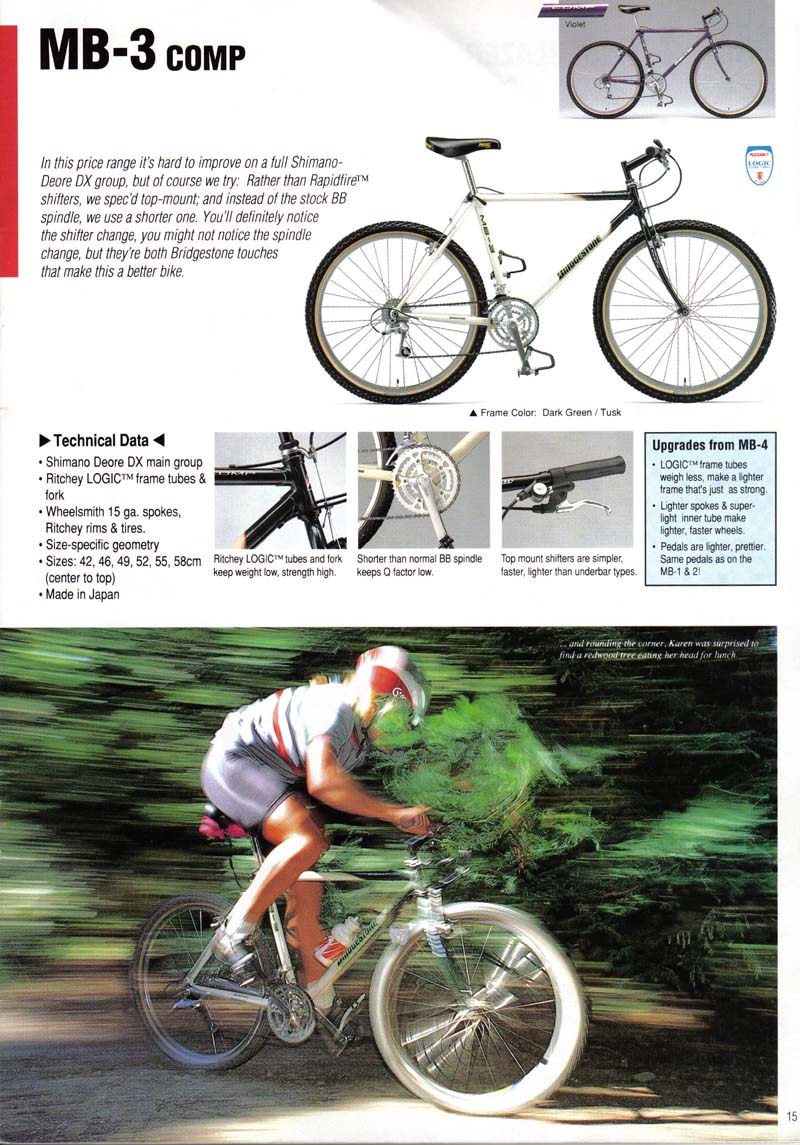
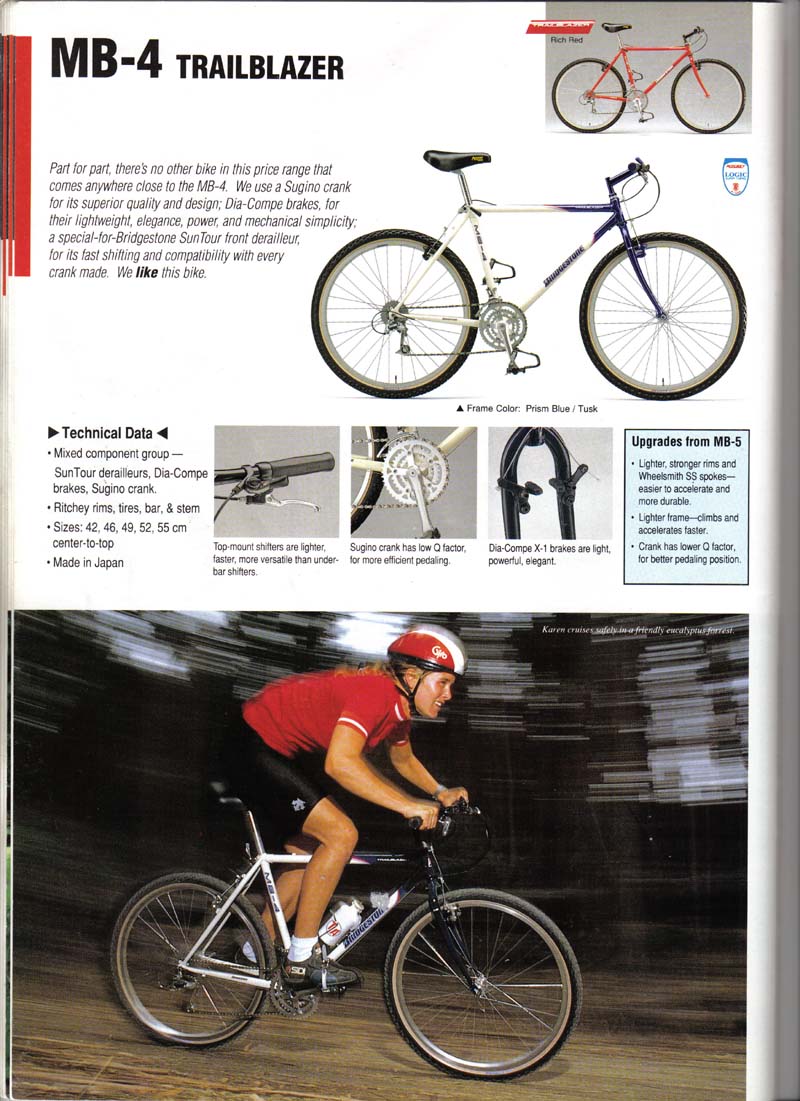

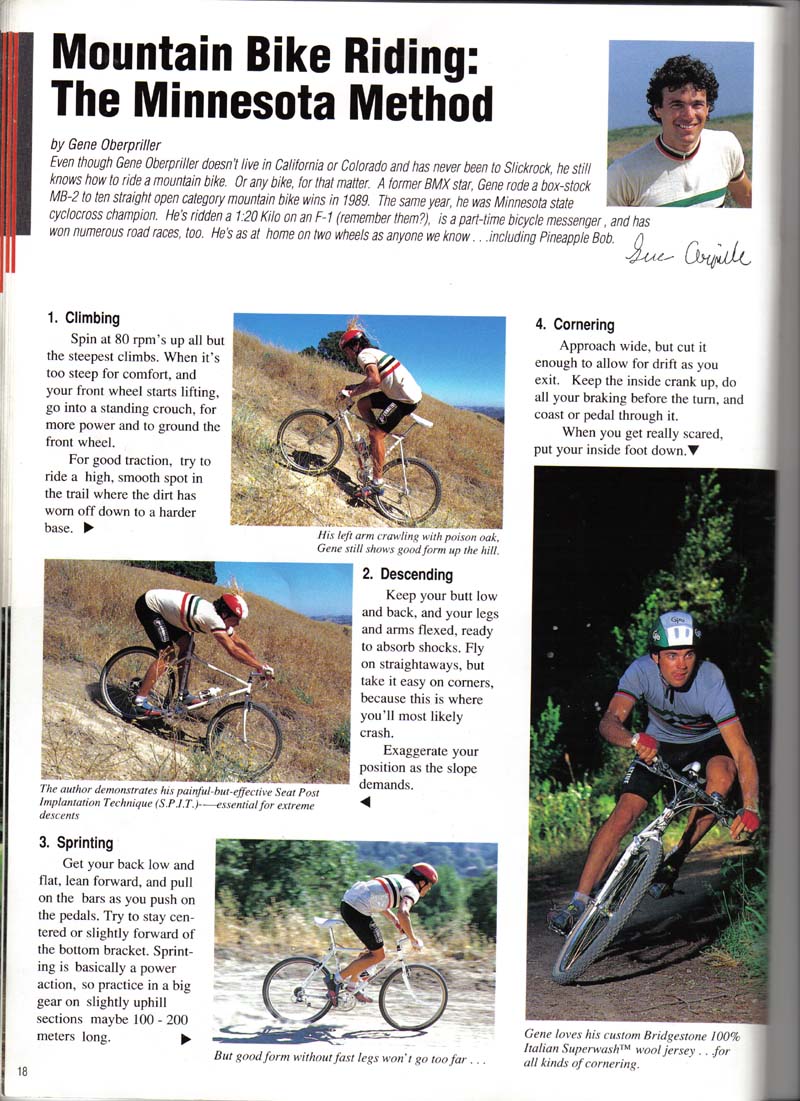
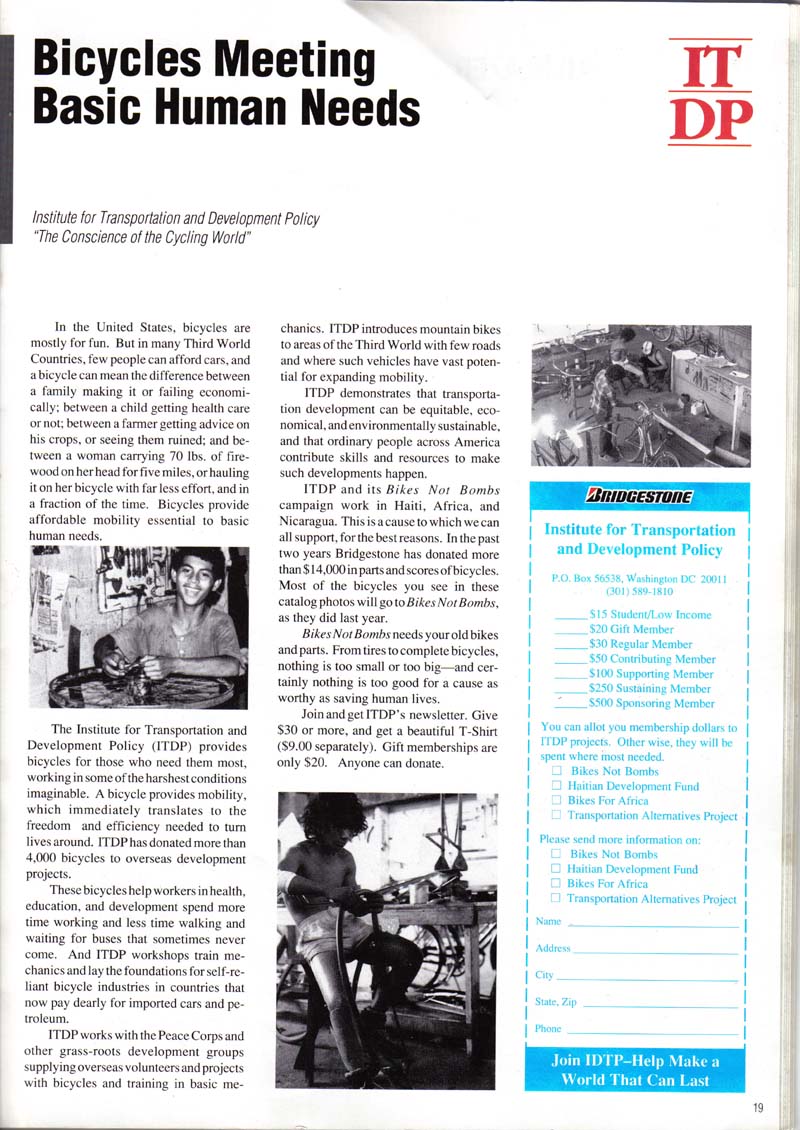
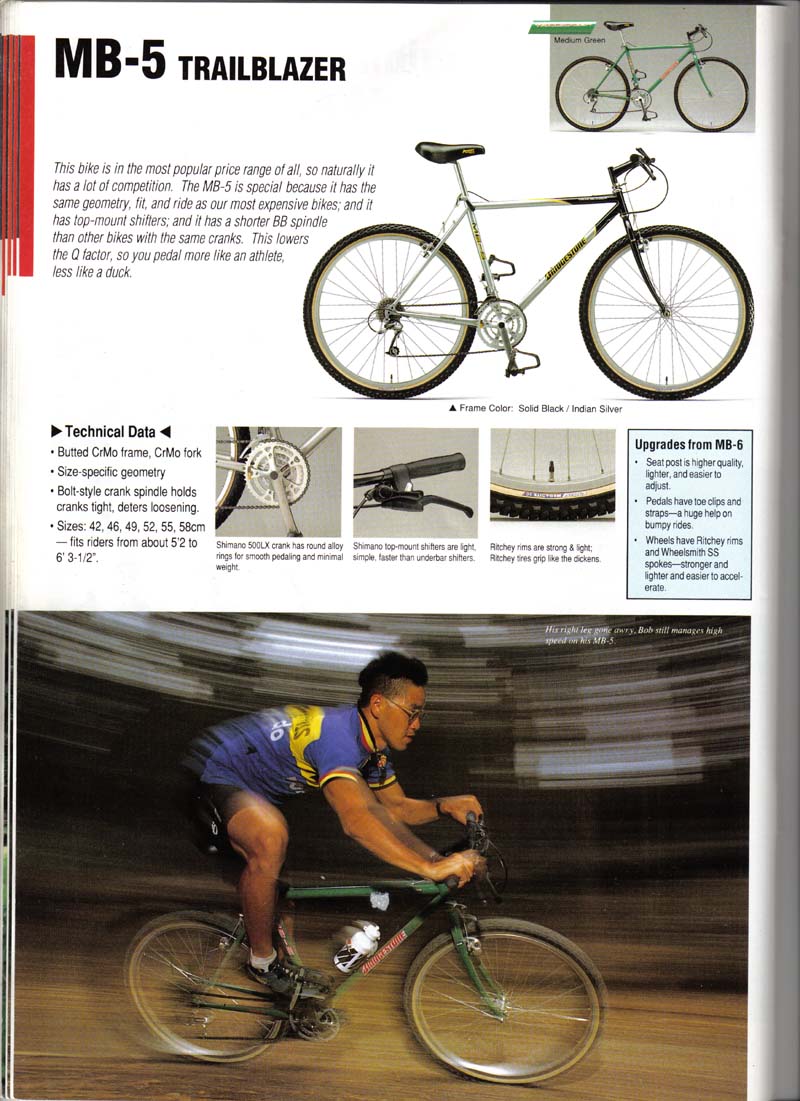
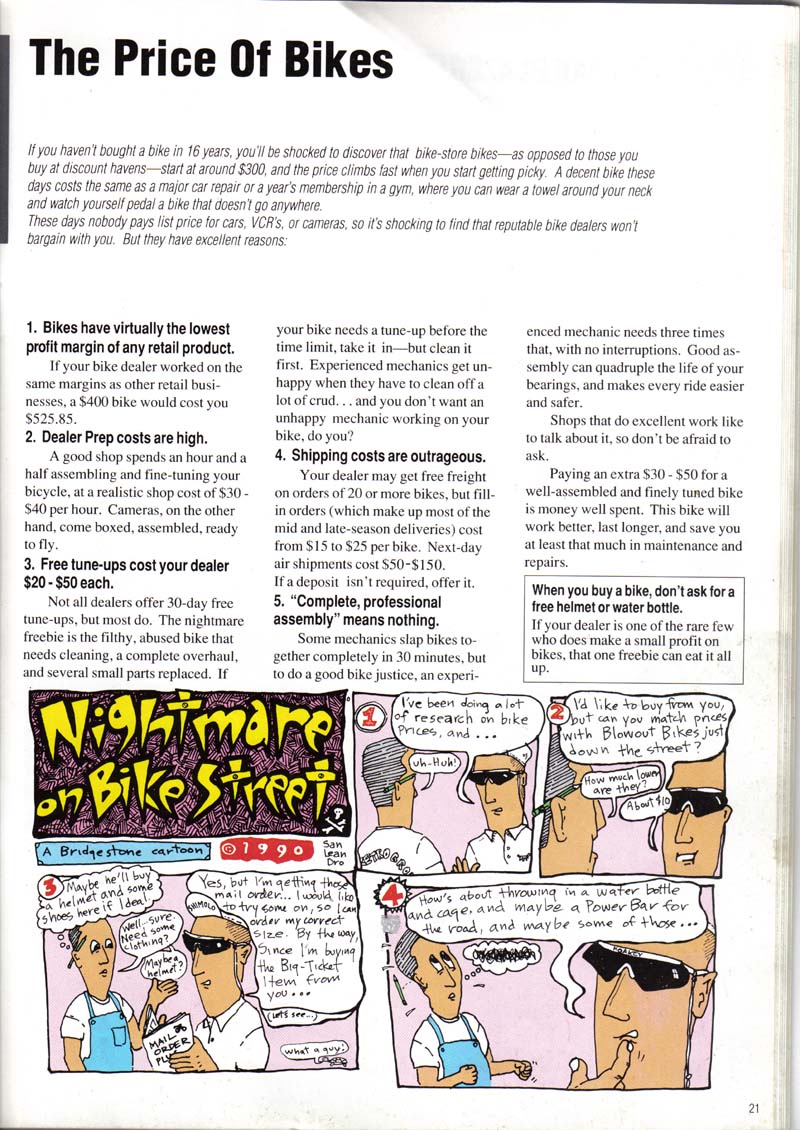
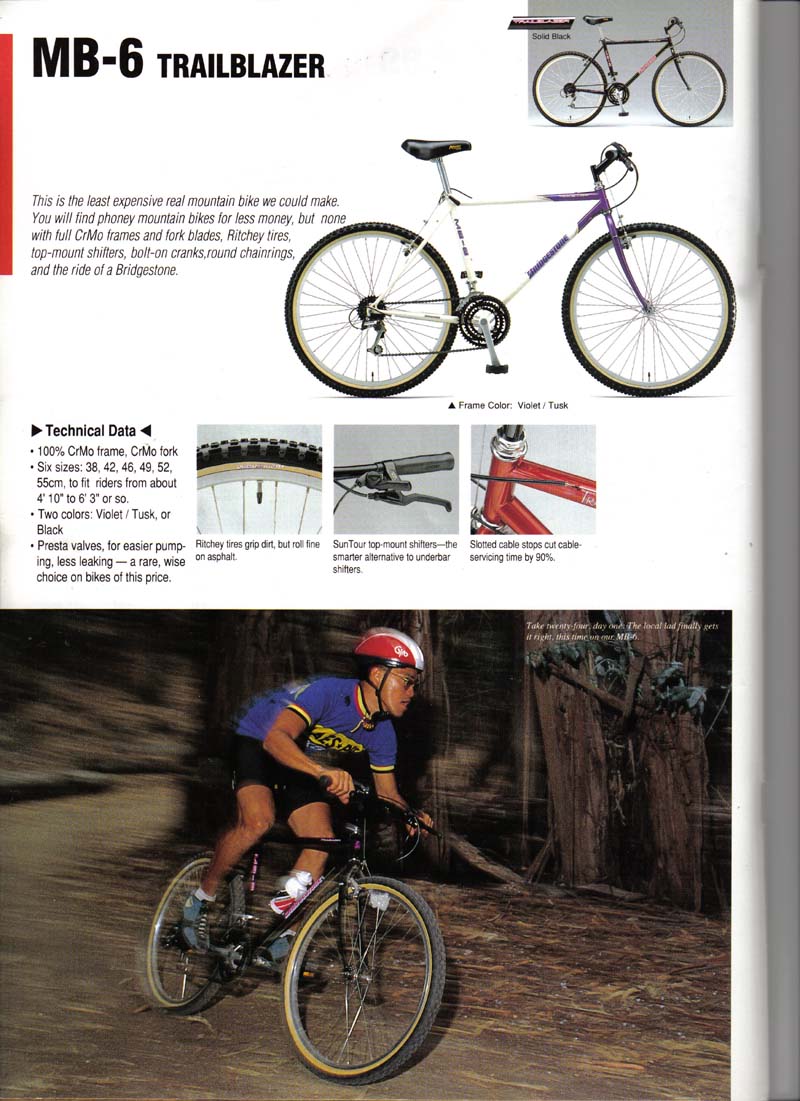
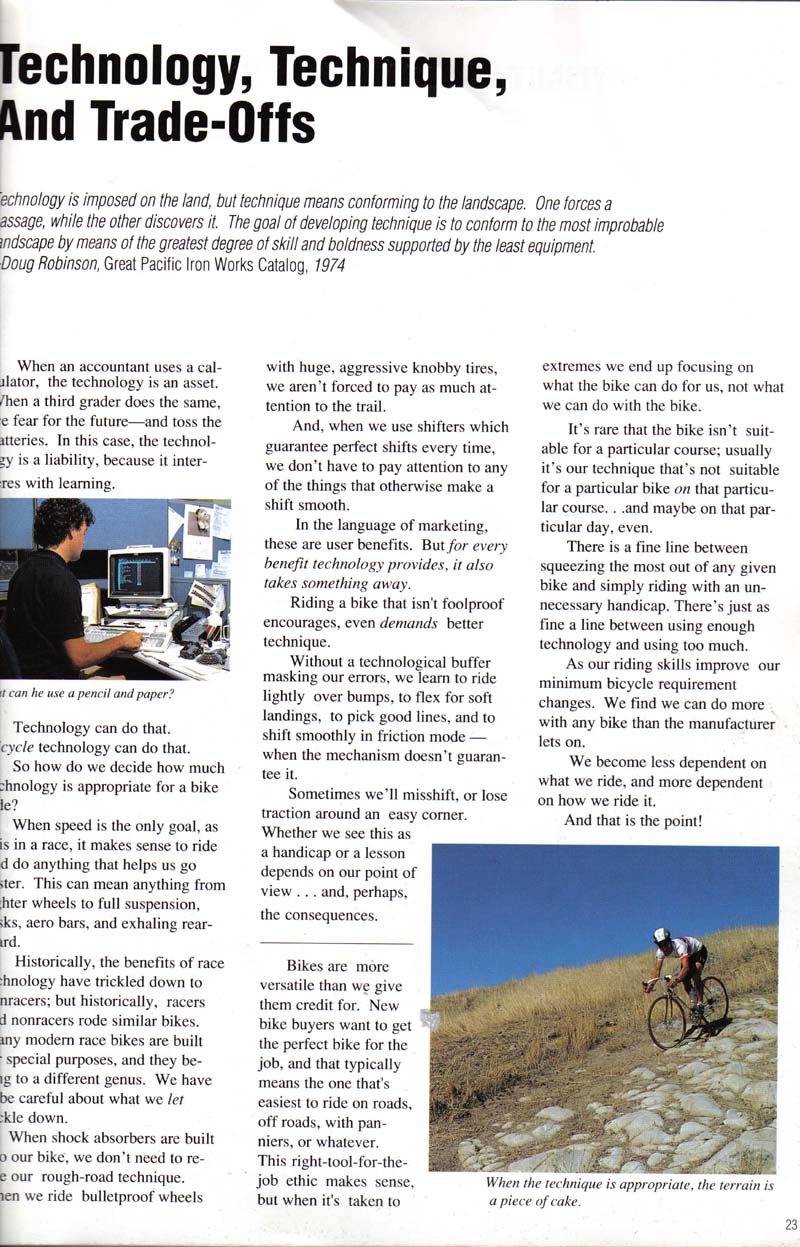
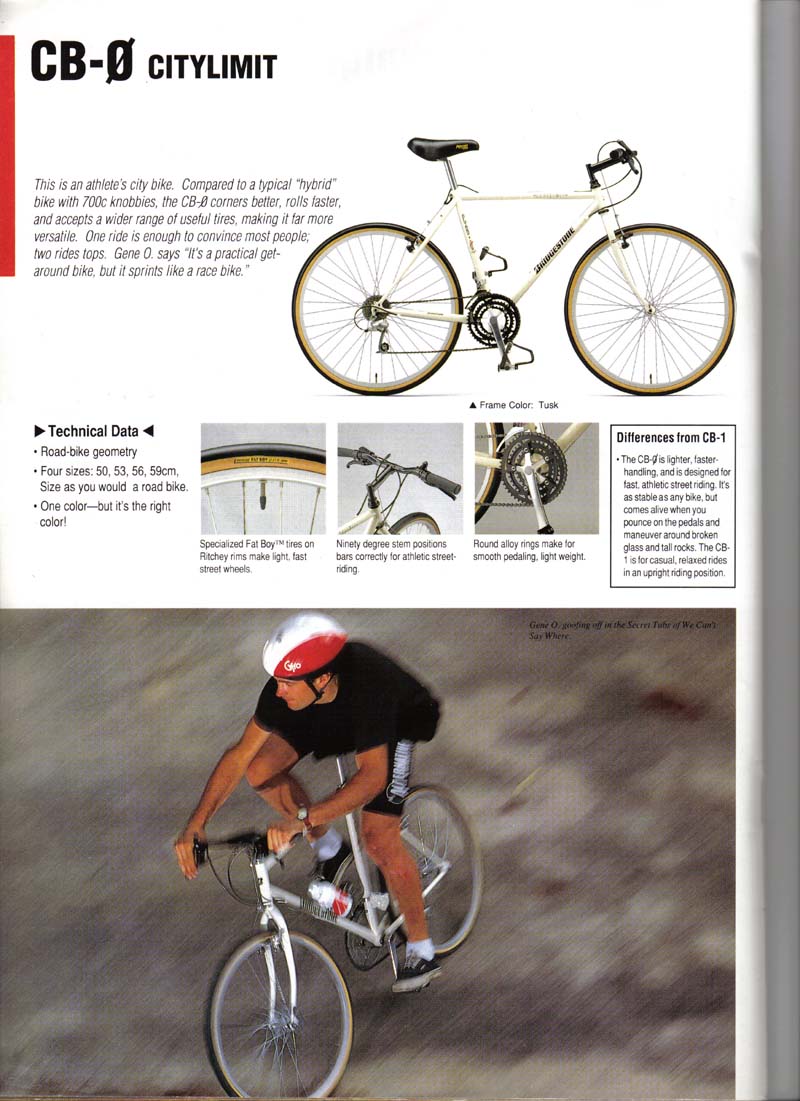
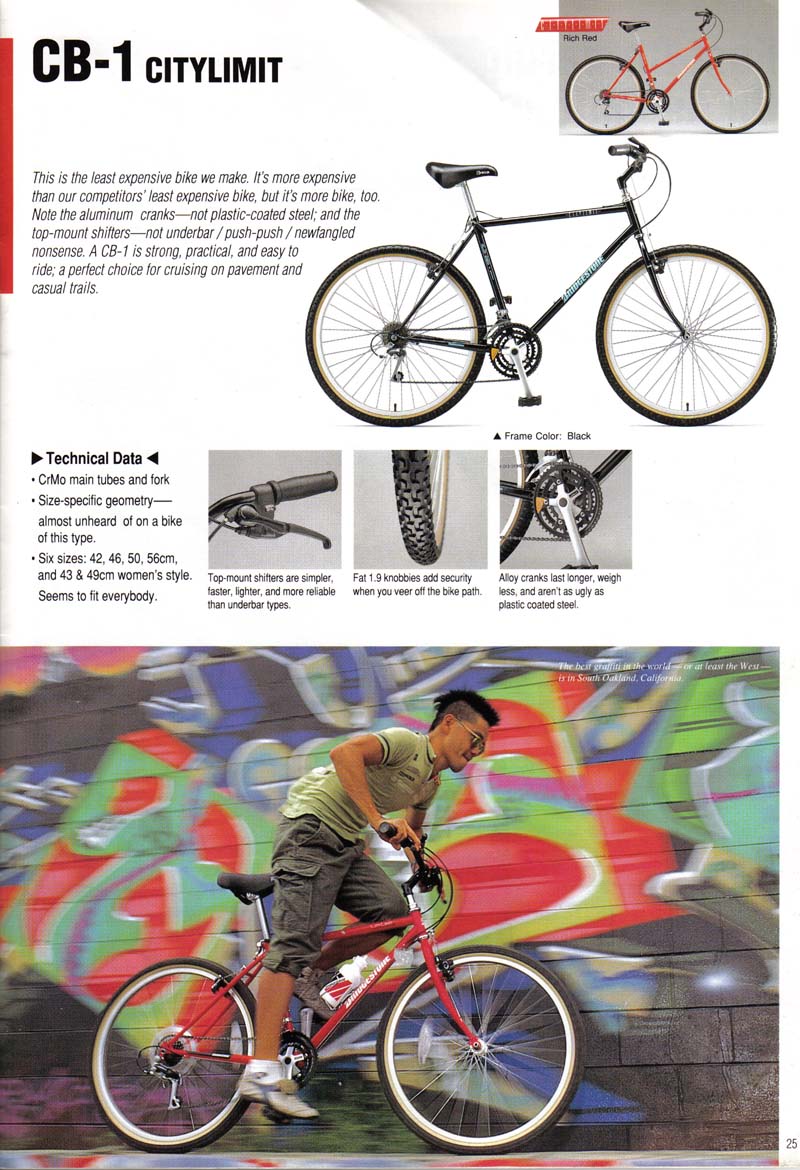
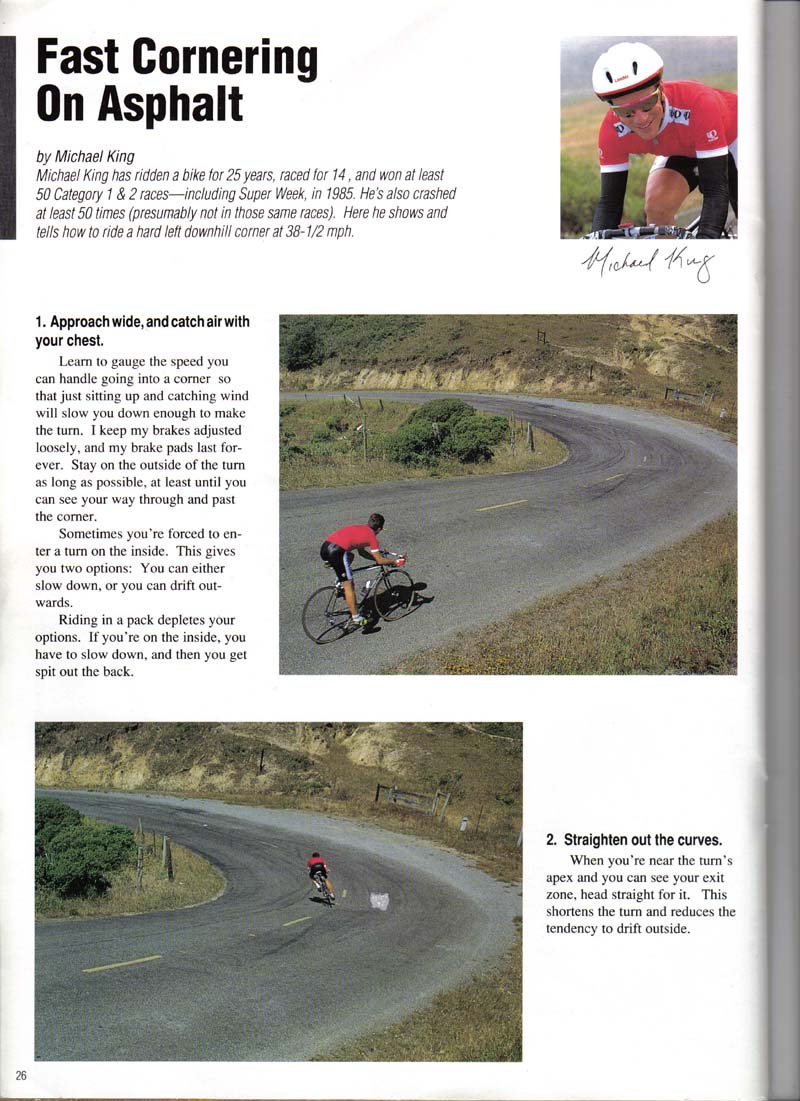
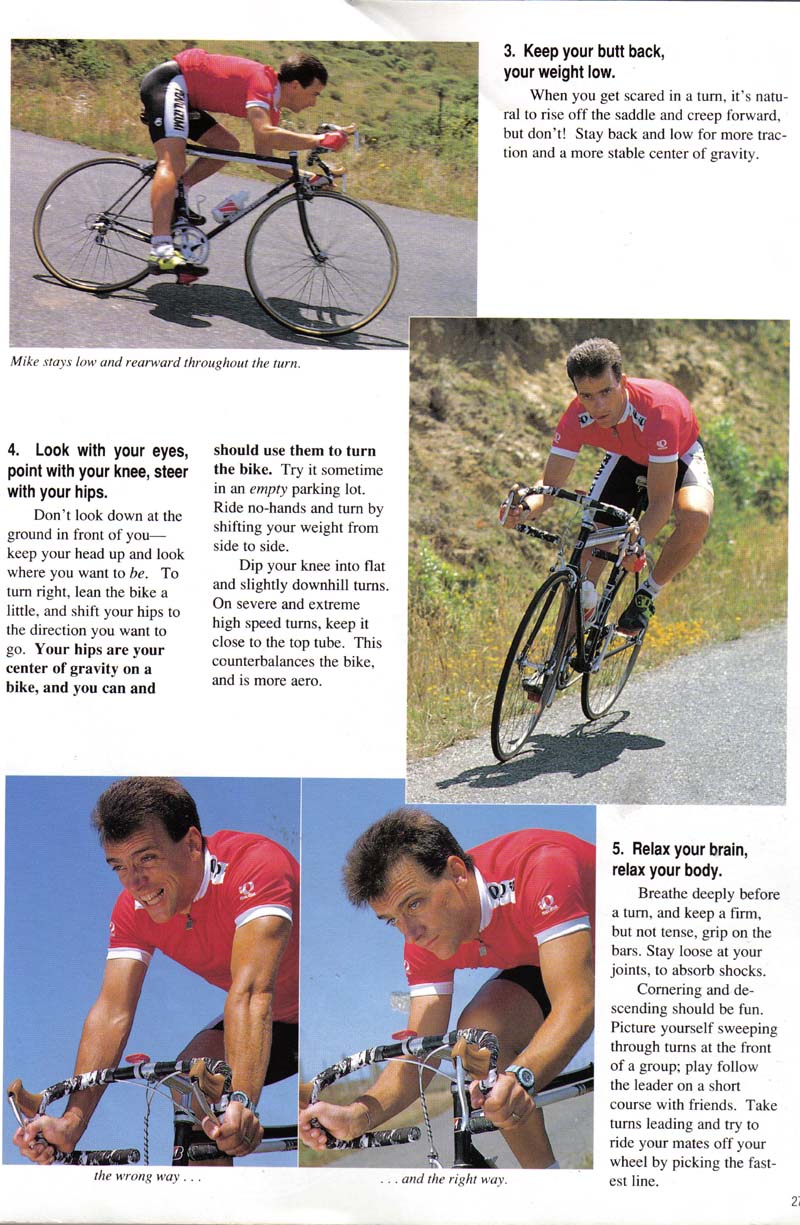
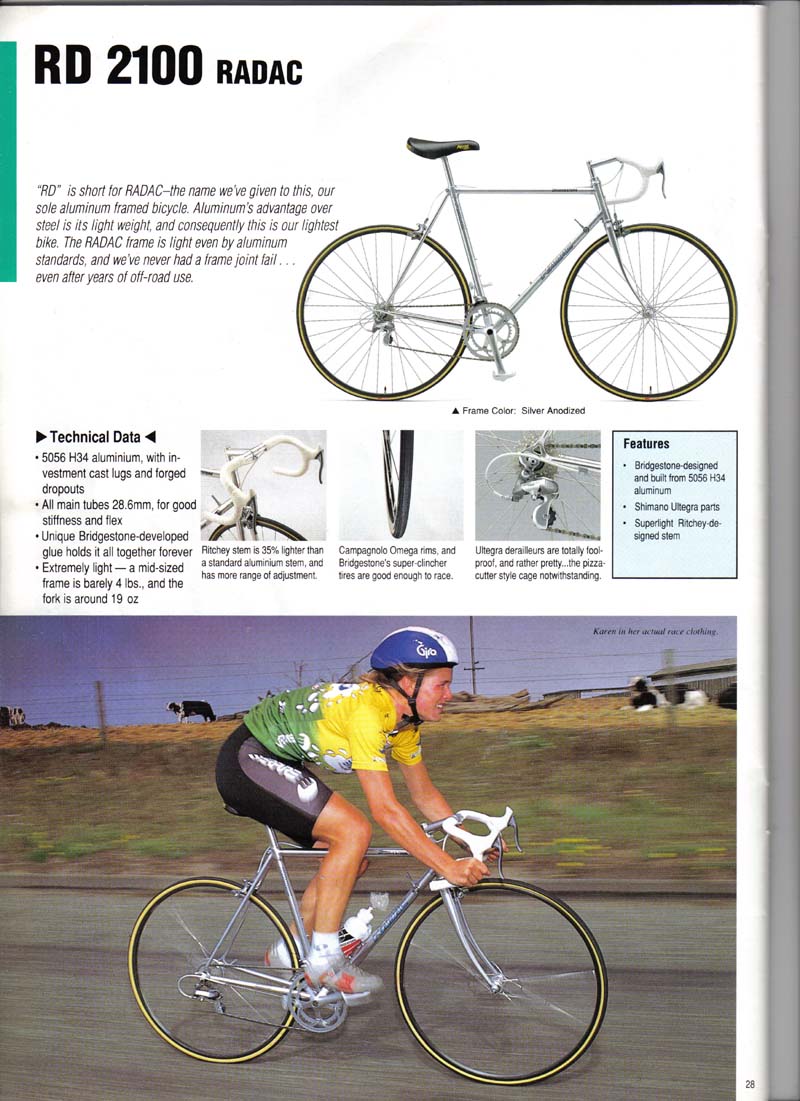
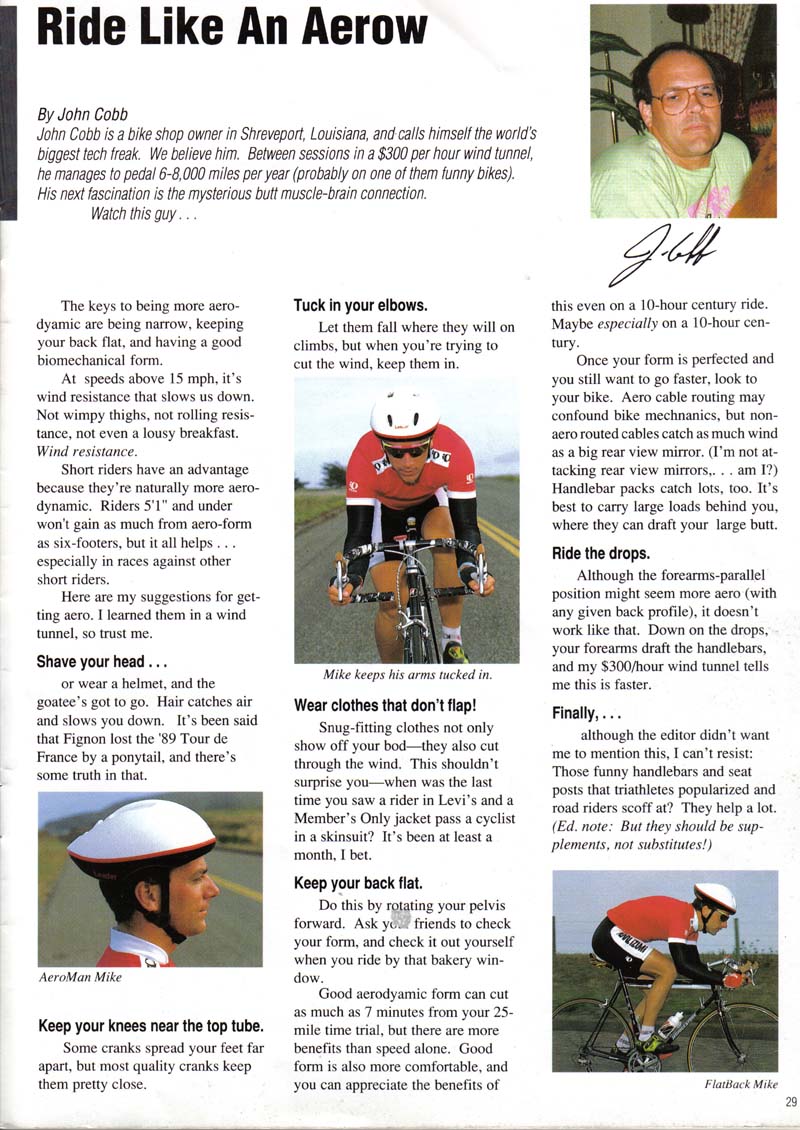
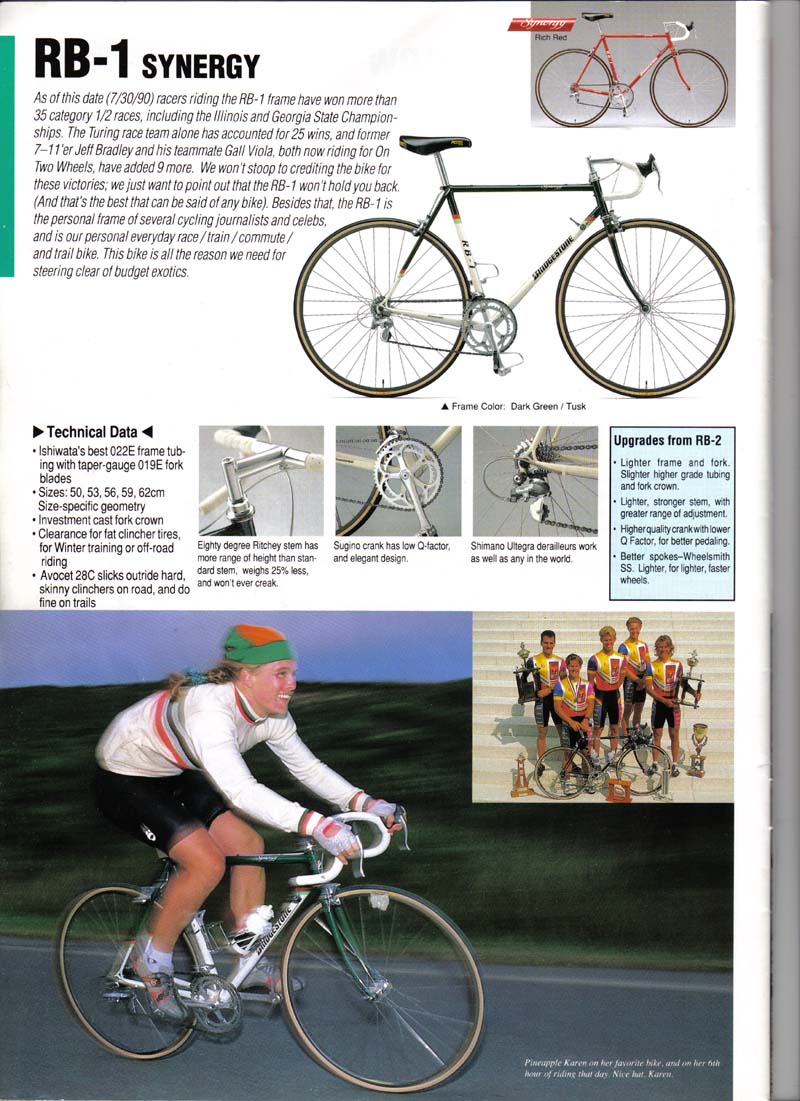
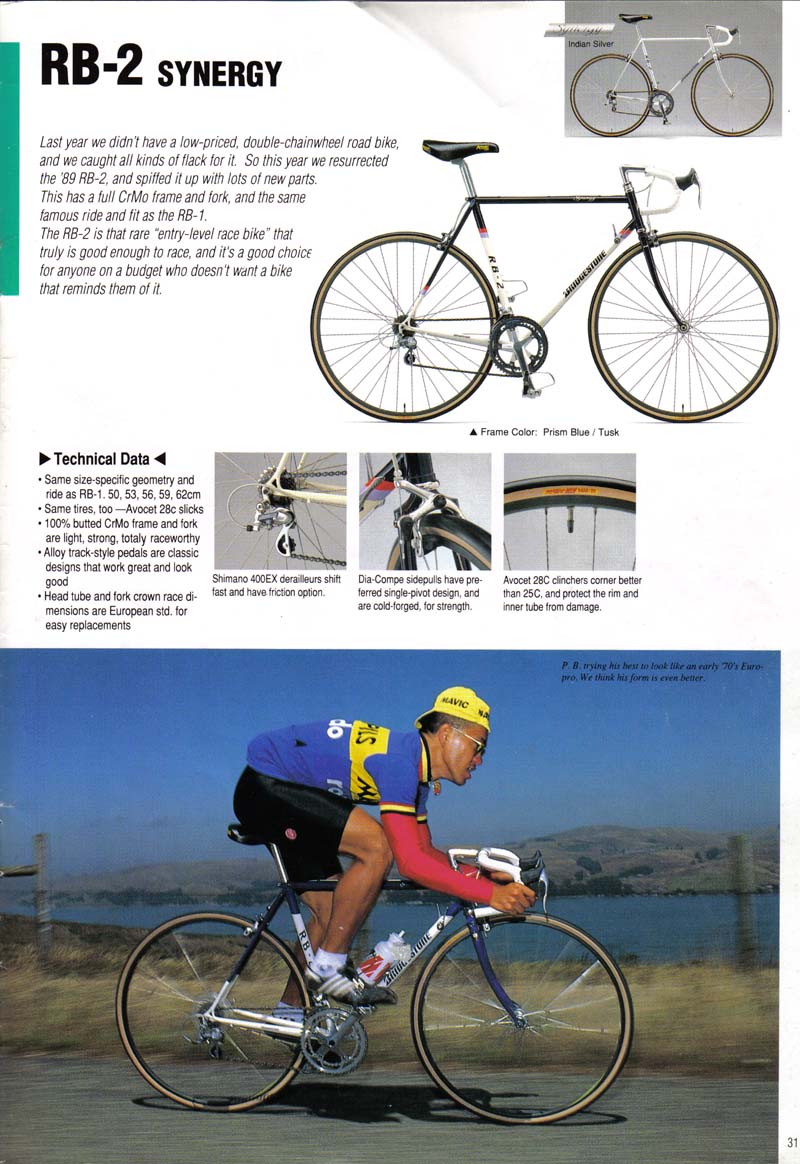
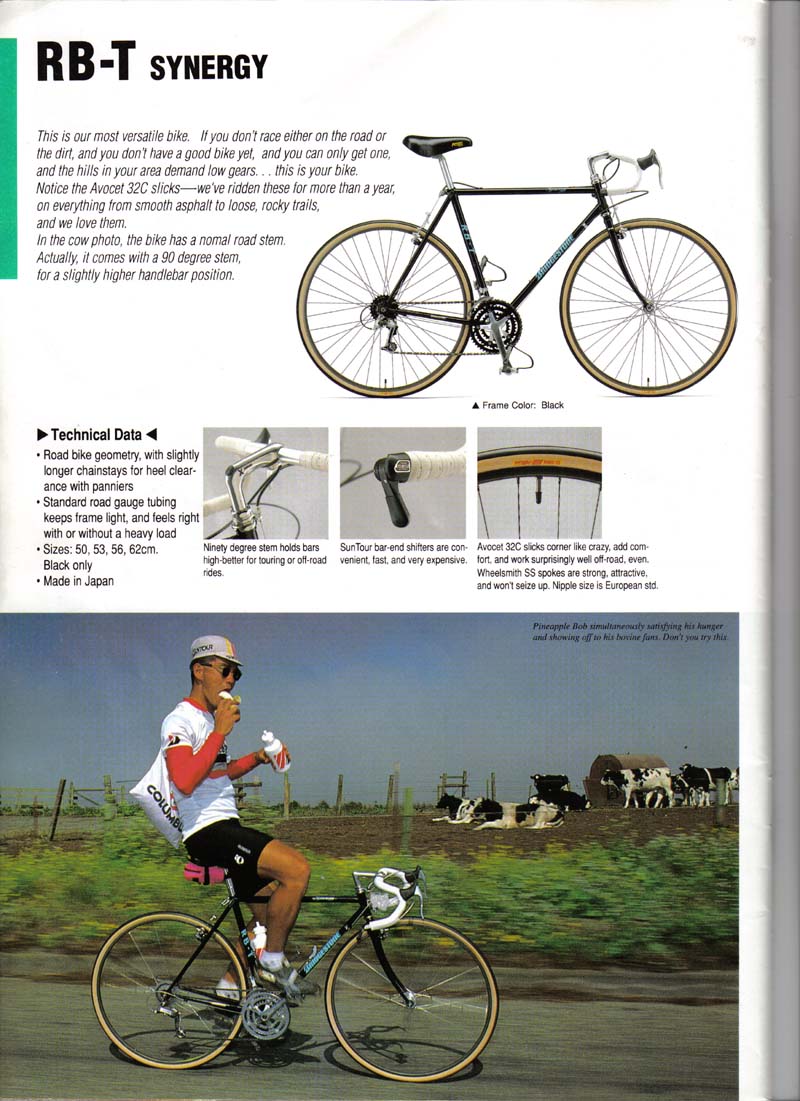
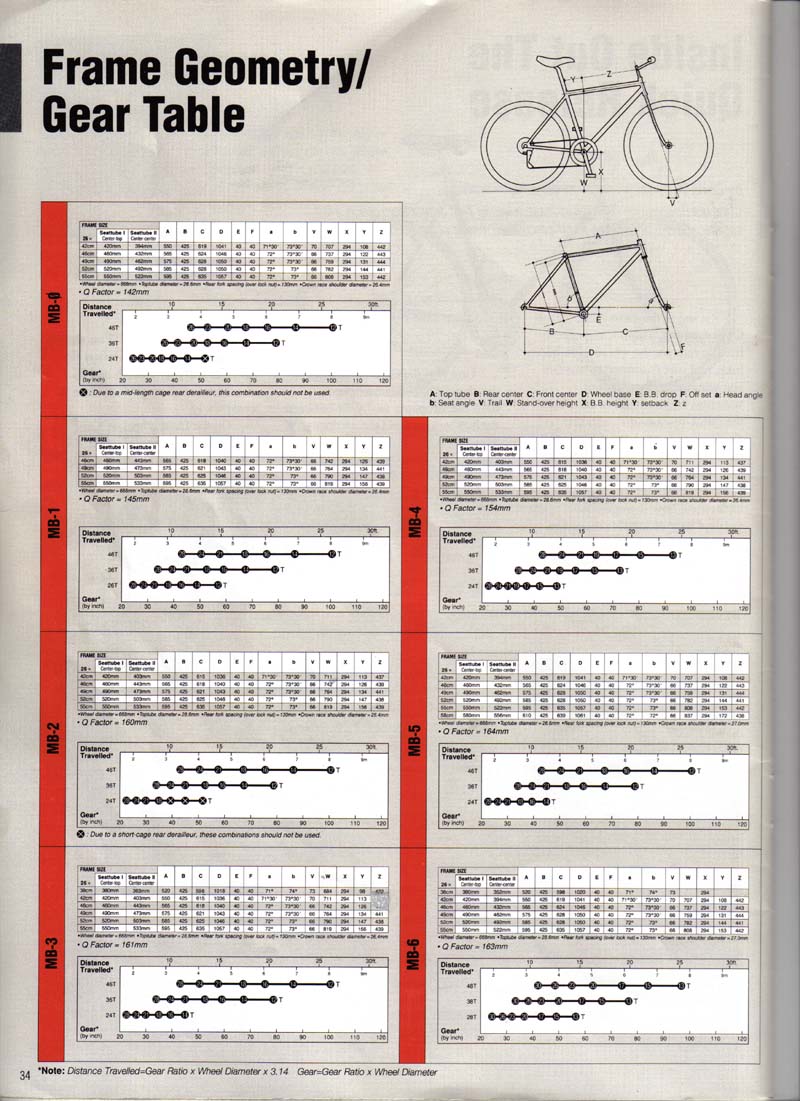
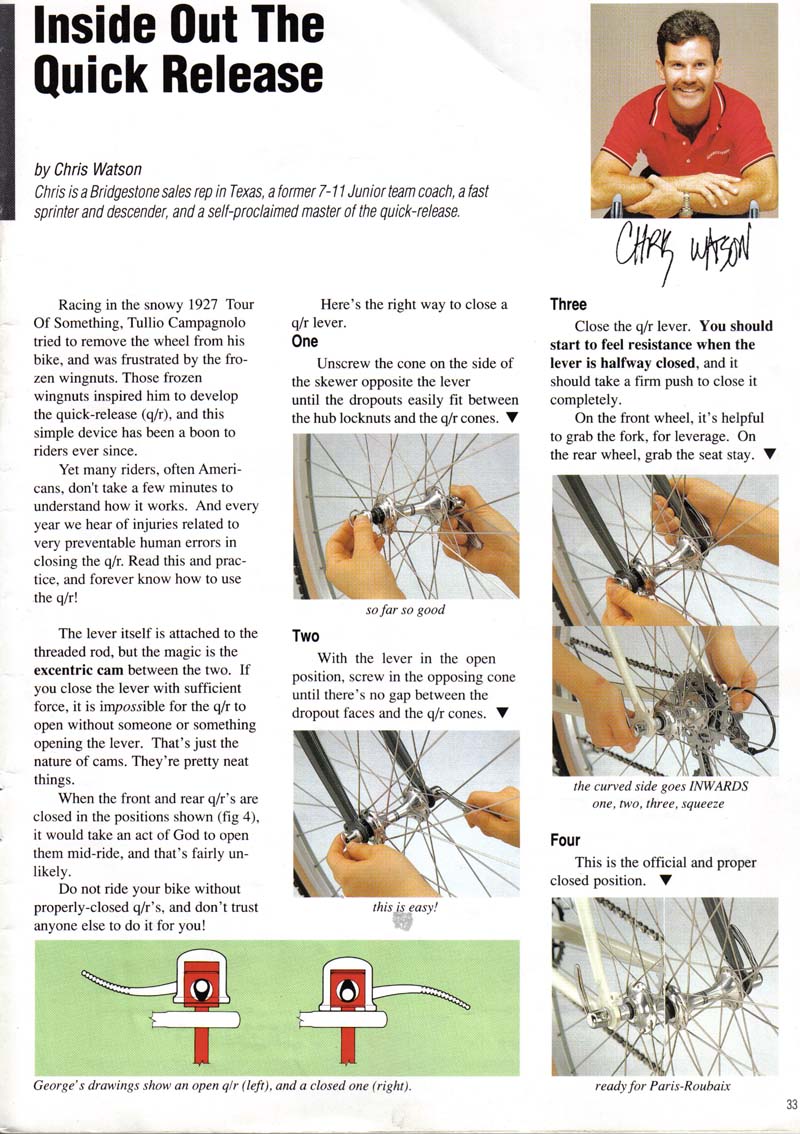
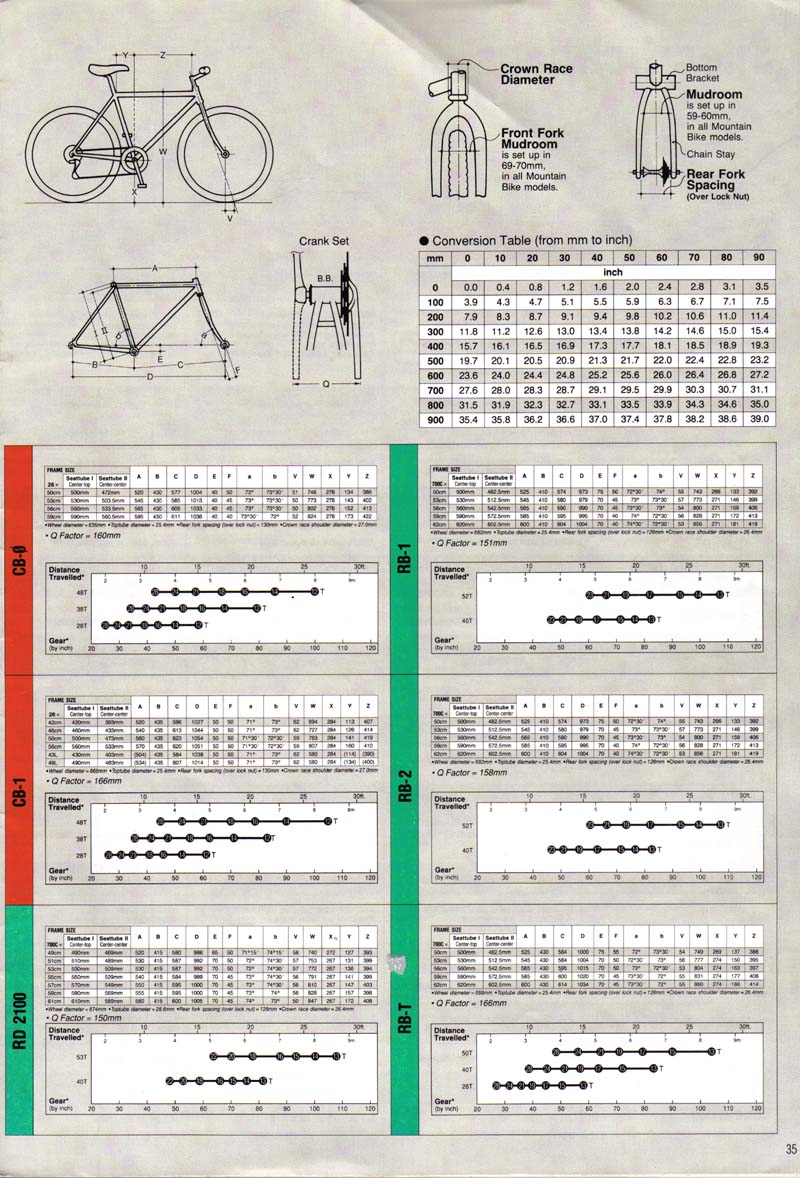
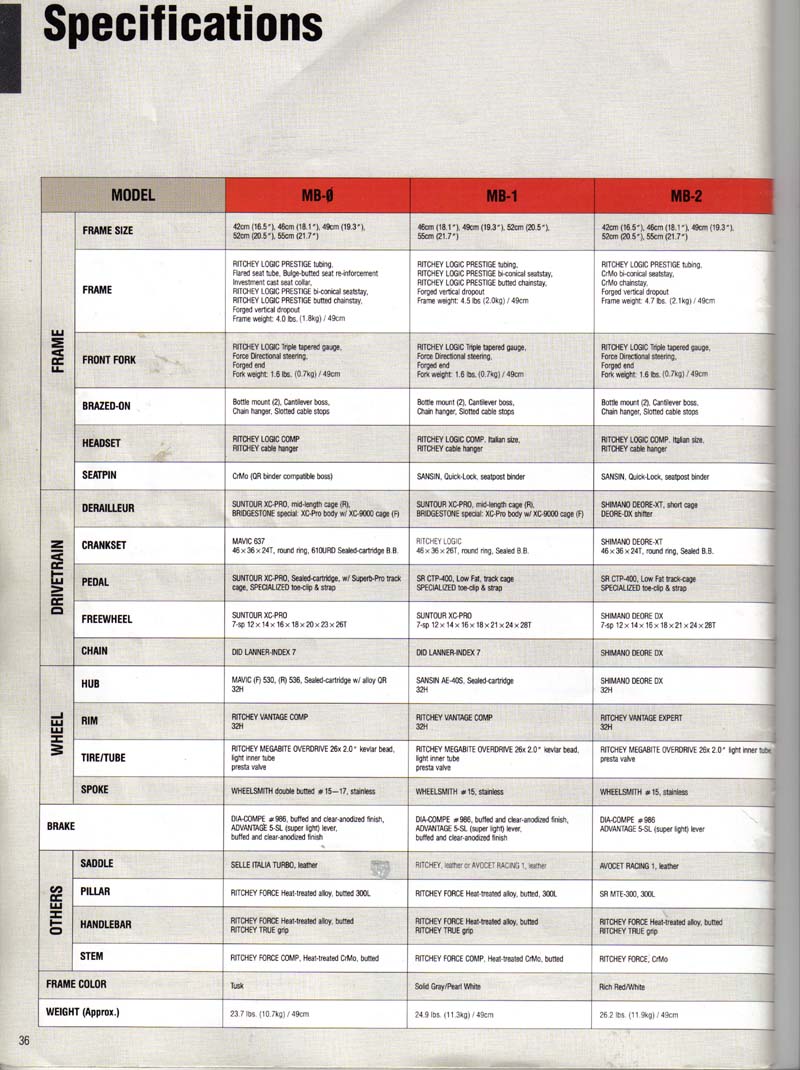
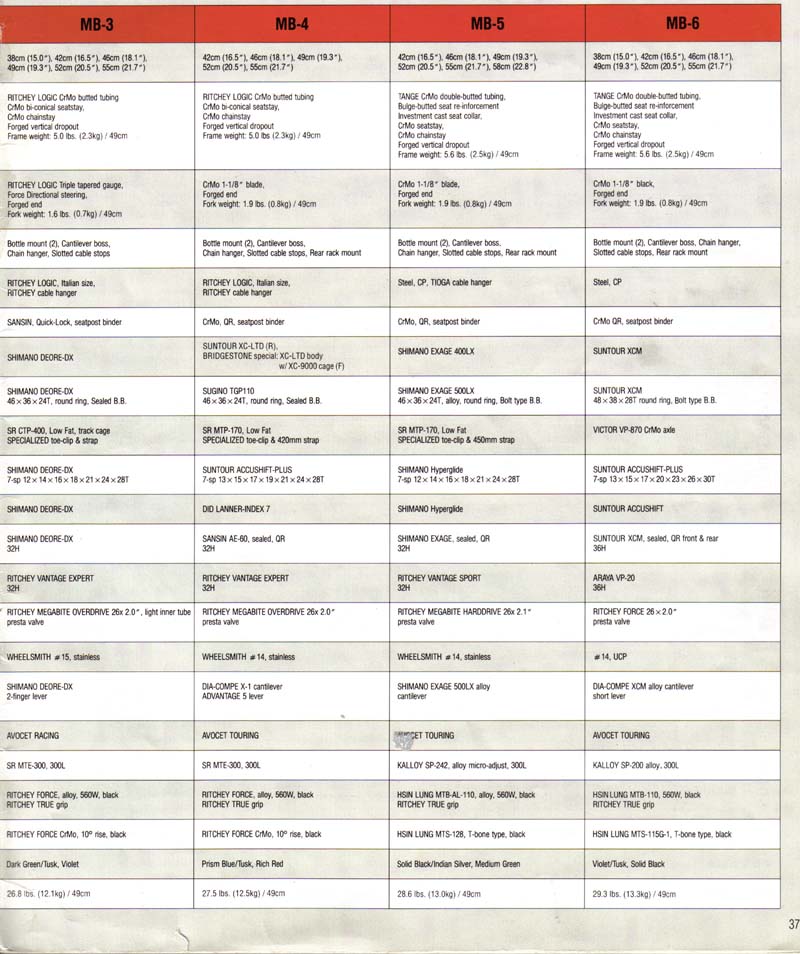
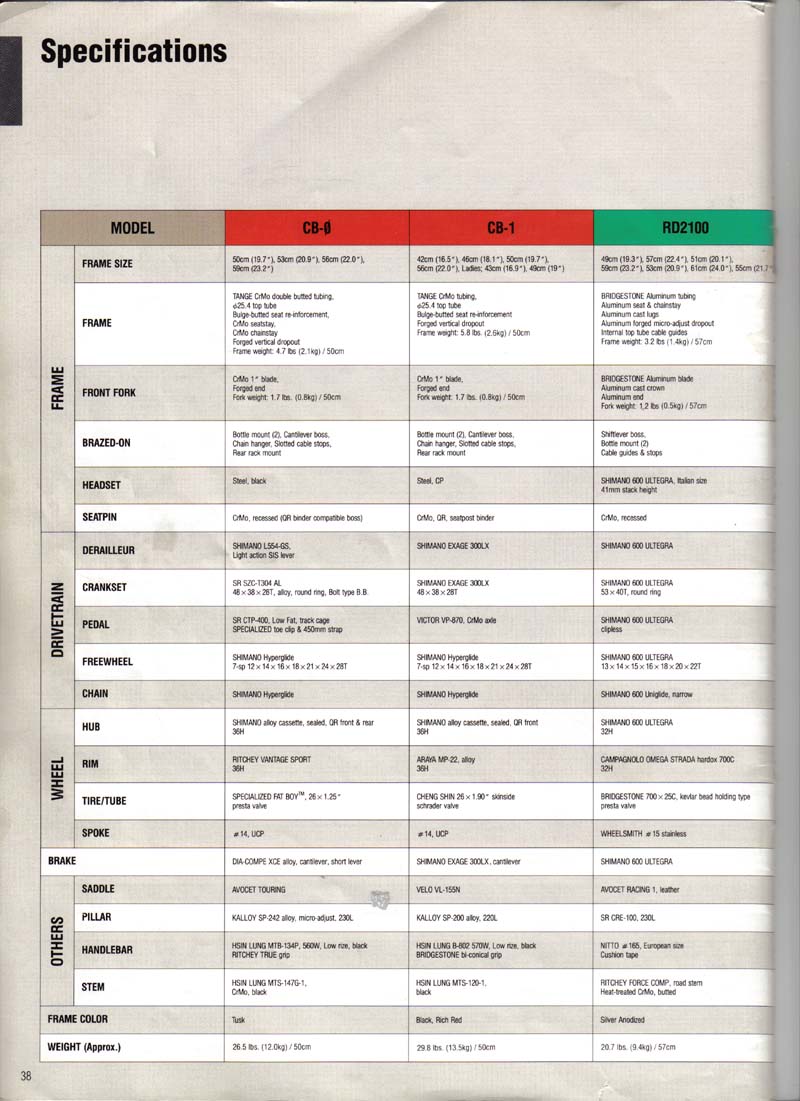
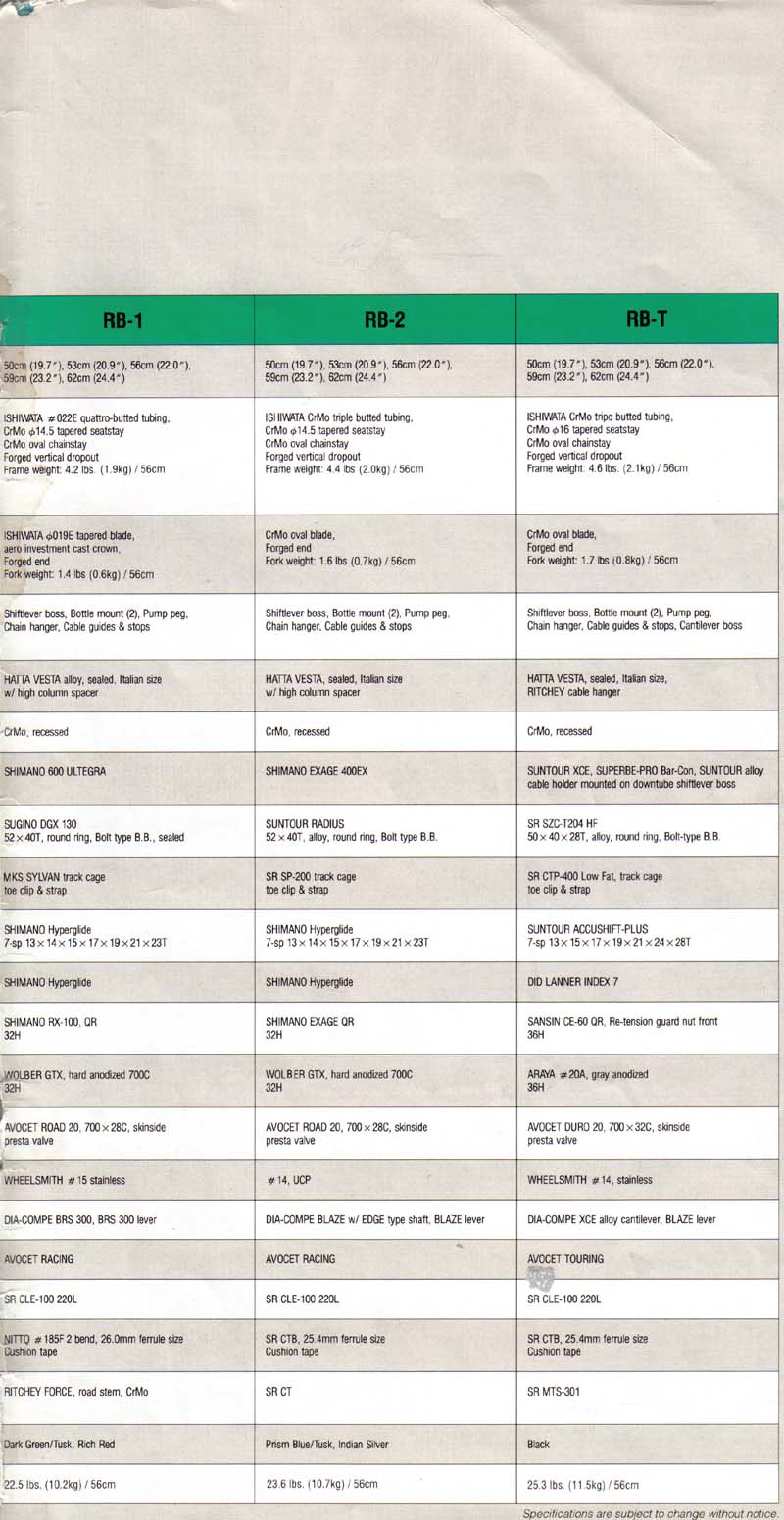
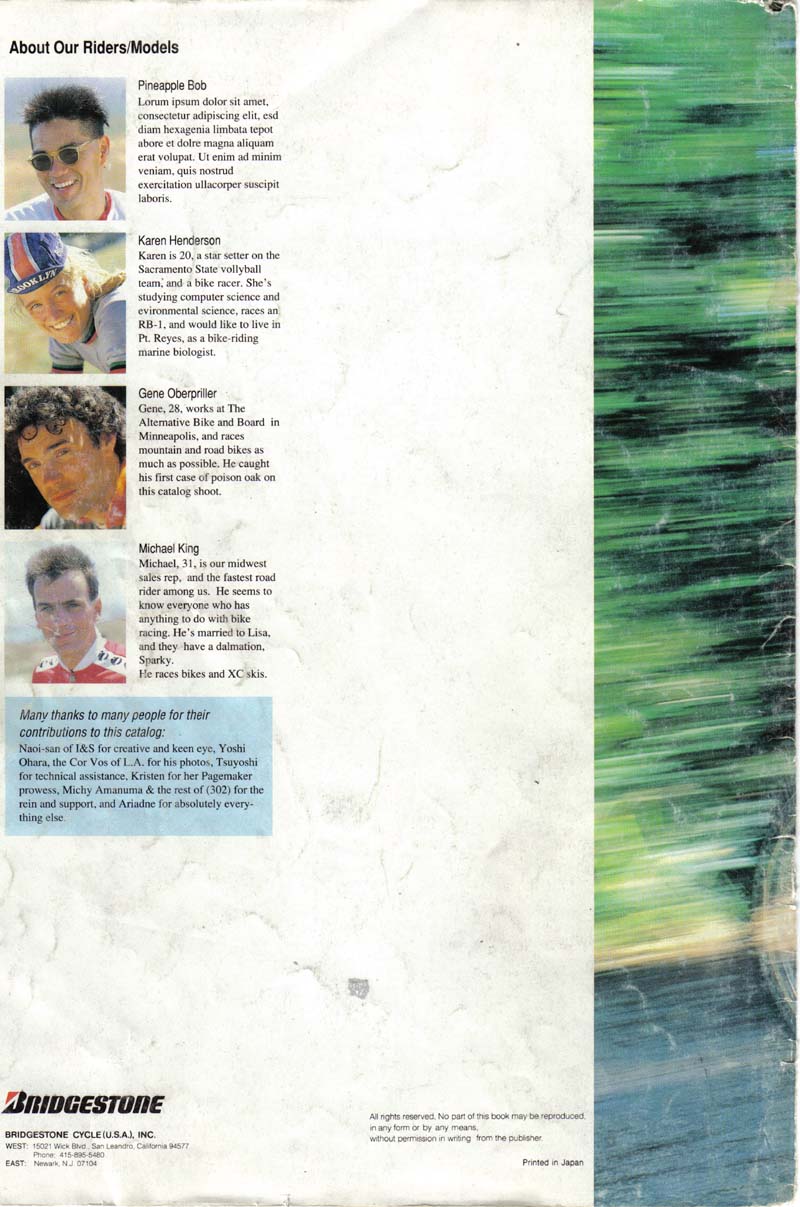
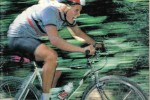

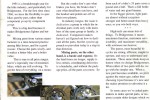
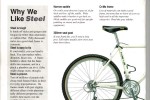
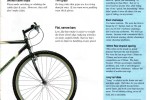
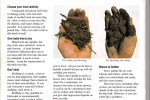
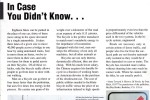
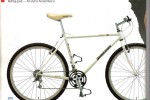
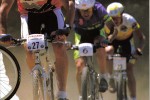
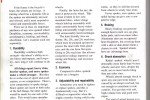
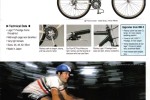
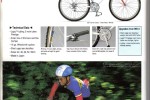
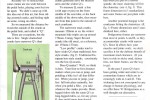
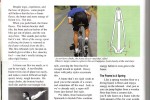
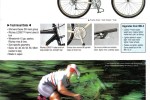
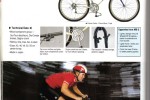

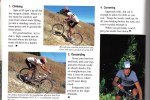
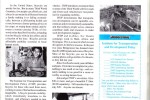
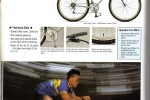
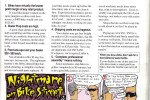
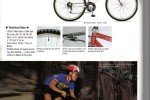
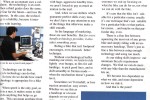
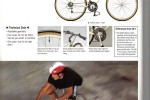
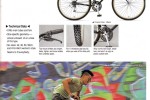
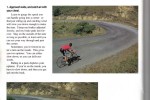
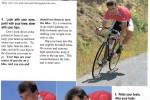
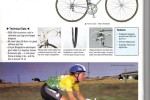
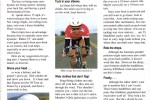
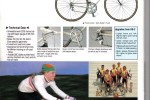
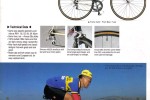
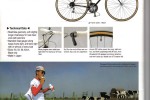

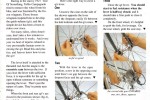
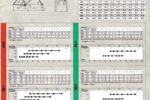
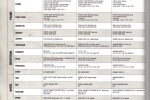
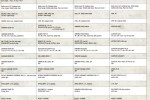
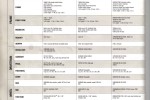
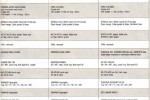

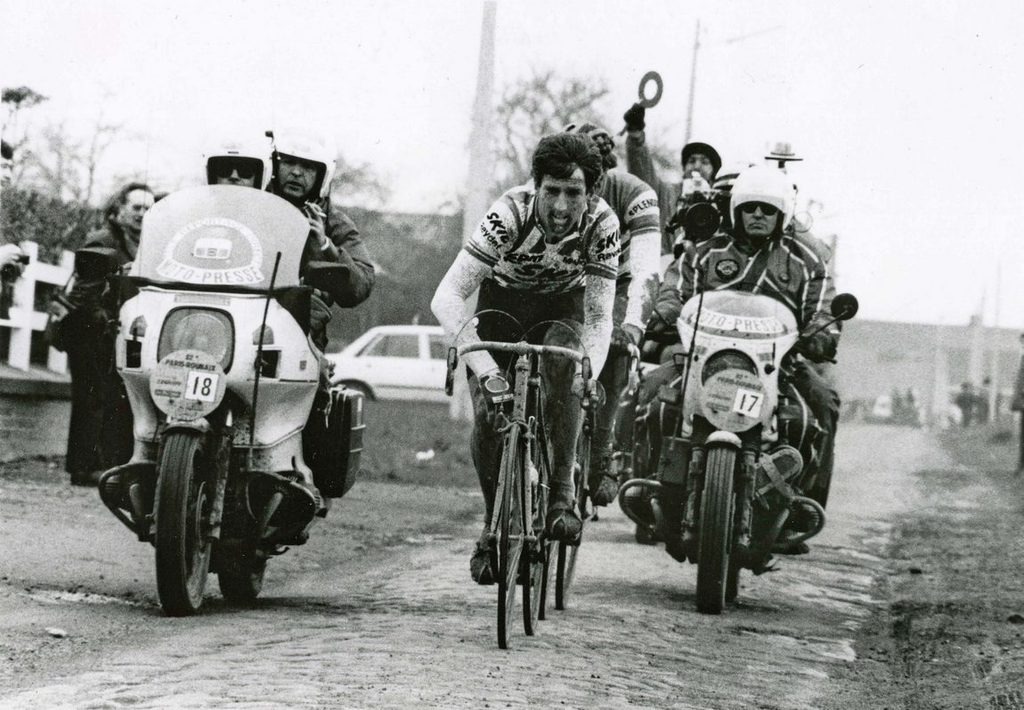

Nice score Frank! I love how short the headtube is in comparison to the length of the top tube!
I see Pineapple Bob in there, and the only other Bridgestone rider from that era that I can recall was Gene Oberpriller (I think that’s how you spell it). Ah, I just noticed ‘Gene’ in your last sentence…
@brett:
Good eye on the top tube, and well done identifying Gene, the man in the photo! A Minneapolis, Minnesota (where I was raised) legend and owner of super cool bike shop, art gallery, and cafe: One on One Bicycle Studio. The frames are supposed to be fit small, and as they say in the catalog, if the frame fits, you’ll have lots of seatpost sticking out. My first upgrades will be a 400+mm seatpost and a 150mm stem, so I guess the frame fits!
Although Brett beat me to it in naming Gene, I can top that with an eye-witness account of Gene’s style. Picture the start to a typical mountain bike race in the early 90s. Lots of lycra. A few rock-shox (maybe), and a couple of guys locked-in to their Look road pedals (I was one of them), teetering at the start and waiting for the gun to go off. A cloud of dust in the distance is followed by a car that pulls up to the start line. Out comes some dude in a white t-shirt and jeans, appearing to be in no hurry. He opens the trunk, pulls out his MBzip, and slowly puts on his jersey and those sweet original Oakleys. Rides up right to the very front of the start line just as the gun goes off and proceeds to win the race easily.
Now, onto the bizness of Bridgestone bikes. Although I never had the cash to spring for a zip back then, I coveted it highly. So highly, that I bought the MB-2 due to its proud lines and similar geometry. I’ll never forget the day I showed it off to your dad. We were on that greasy trail in Northern Minnesota that you so fondly describe. Calling it a “single track” is quite generous. It was basically overgrown, muddy, tick-infested hell. The Paris-Roubaix had nothing on it. It was on this very trail that your dad broke his full-suspension Cannondale beast — a bike so heavy and complex, you needed an advanced degree in biomechanics and a track racer’s legs. Anyway, while your dad flailed away on a climb, I boldly announced, “Otto, step aside!” and proceeded to crank my MB-2 with great ease up the hill. The bike climbed beautifully. The transfer of power from my burly legs to the cranks was so complete and efficient that I quickly snapped the chain, about half-way up the massive incline. But, due to the bike’s brilliant geometry and responsiveness, I kept spinning in place (sans chain of course) for at least 20 more seconds, grinning at your dad.
@Spankles
That trail was unbelievable. We broke so much gear, it’s hard to keep track. First Cannondale ever broken was broken by my dad on that trail. It was Cannondale’s first warranty replacement, and they were so shocked, they gave him their prototype Boinger, which you are referring to here. He also broke that one, as you correctly point out.
Well, you started it all. Dad went and bought himself that MB-1 immediately after your ride together.
Frank,
I guess 1991 was before you or dad bought the Specialized “Hard Rock”. Or was it “Heavy Rock”?
You forgot to mention the deer flies on “The Trail”. That’s what made it special. They’d land right under the back of your helmet where you couldn’t easily swat them. Then you’d slow down on a flat section, press your hand back there, and hear the crumpling sound of about 20 blood-gorged deer flies bursting under the pressure of your hand. Very nice. Needless to say, the swim after the ride usually felt pretty good.
Heck, 19 pounds is still light for a mountain bike. Congrats on a good purchase — it looks like it’s in nice shape. The pedal baskets are a nice touch. Dad still has a bunch of spare Suntour parts. I assume the bike was well-used but well-cared-for?
@Erik
Dude, seriously. Those horse flies were a nightmare. Remember those big poofy jackets we rode in to keep them off our backs? That wasn’t right.
The bike is in amazing shape; there are some rub marks from the cables, and that is about it. Stay tuned for a more detailed set of photos.
MB0 at JRA, right? I remember seeing that beauty in the window. Never had one myself, but it took me back to my early days in B’ham trying to keep up with the guys that did.
Wow! What a blast! That Bridgestone catalog turned me on to what’s what in bikes and started a fever from which I have yet to recover. Amazing how much they got right that still seems so cutting edge and just plain obvious. I still think of Mike King teaching proper road-bike cornering technique when I hit my (least) favorite turns here in NorCal. I’m also a little bit self-satisfied to note that over the years that have ensued since, I’ve met each of the catalog’s featured models. Awesome people, for sure. Long live the bike tribe! Long live your MB-0!
@Dave
Yup, that’s the one!
@Andrew
It’s a beautiful experience to customize a bike and hand-pick all the components; you can just feel the TLC that Bridgestone put into their bikes. It poured out of those pages, and it pours out of this bike, too.
Long live the bike, indeed!
Frank – thanks for stopping my my blog. That is indeed my old Zip that I sold about a year ago. As you found, my post with the Zip story:
http://yoeddy.blogspot.com/2009/05/personal-rides-bridgestone-mb-0.html
Enjoy the bike, seems weird knowing someone else is riding it – but cool also.
Great blog you have going here.
@Dan O
Thanks. Likewise, it was strange to read your post. On the other hand, it’s pretty cool. The weirdness of the Internet, huh?
8th grade? I was just finising college. My first mountain bike was an MB-6, which I sold 2 years later and bought an MB-4. I still have it and I’ve converted it into a single speed. I love it, and I love every opportunity to ride it! Glad I found your site.
@Coach Suzanne
There really is something about those Bridgestones; they seem to be bringing lots of people together! Welcome to the site!
Picked one up at a moving sale today. Seems like a cool bike. Thanks for the article.
@Mauricio Orantes
Welcome to the club!
Hi all, it is now oct 17 2014! I just came across this MB ZIP web page. My next door neighbour has one and he is selling it to me for winter commuting to work. I didn’t know anything about this bike until now. I don’t know what the no on it is but I think it was also made in the second year. He has spent a lot of money upgrading the components to SUNTOUR’s top of the line gear at the time. The hubs are still smooth as butter and there is a grease injection gun to change the grease in the hub without having to take it apart at all. Very cool. For cold icy snowy winters here in Calgary, Alberta, Canada, I say the feature is invaluable. I can maintain the hubs on a regular basis to keep the bike rolling all winter long. I bought some new tires for it. ice spiker pro for those icy days and top contact winter II for those wet winter days. I am thinking of putting on carbon fork and a drop bar to make it a cross bike! I think the geometry is perfect for Cross. Is almost like a road bike with a longer wheel base which provide stability on icy paths…..I am looking forward to riding this legendary bike in a few weeks and I will post some pic when I have it all done. Cheers to u all.
Nobody has said anything about the other riders in this photo – which has always been one of my favorite MTB photos.
Behind Gene is Joe Murray – 2x NORBA national champion, MTB Hall of fame member, and designer/product manager at Kona and later, Voodoo Cycles.
Behind Joe is Andy Tout who raced for Rocky Mountain, and always had an alligator squeaky toy on his bars. Every bump he hit, it made a little “squawk.”
Sweet bike! I’m about to purchase a ’94 mb-2 with the front shocks. I’d prefer the rigid forks, does anyone have a set they’d like to get rid of?